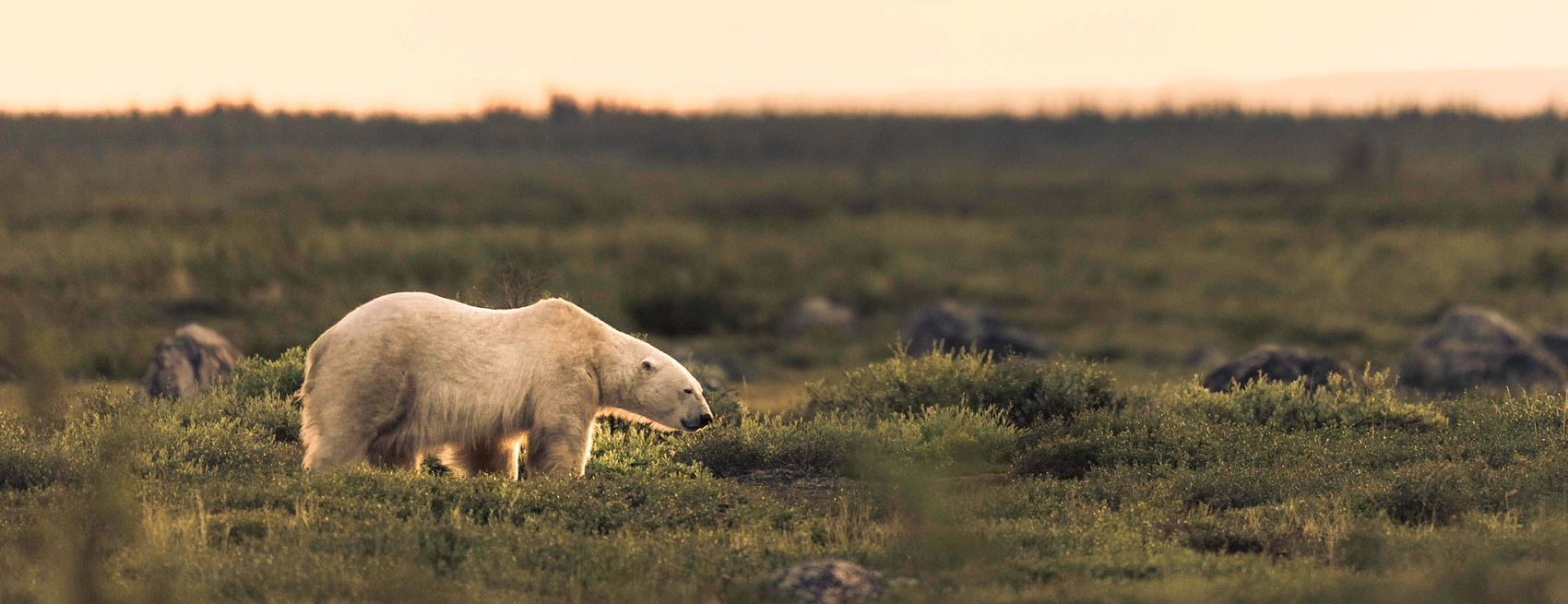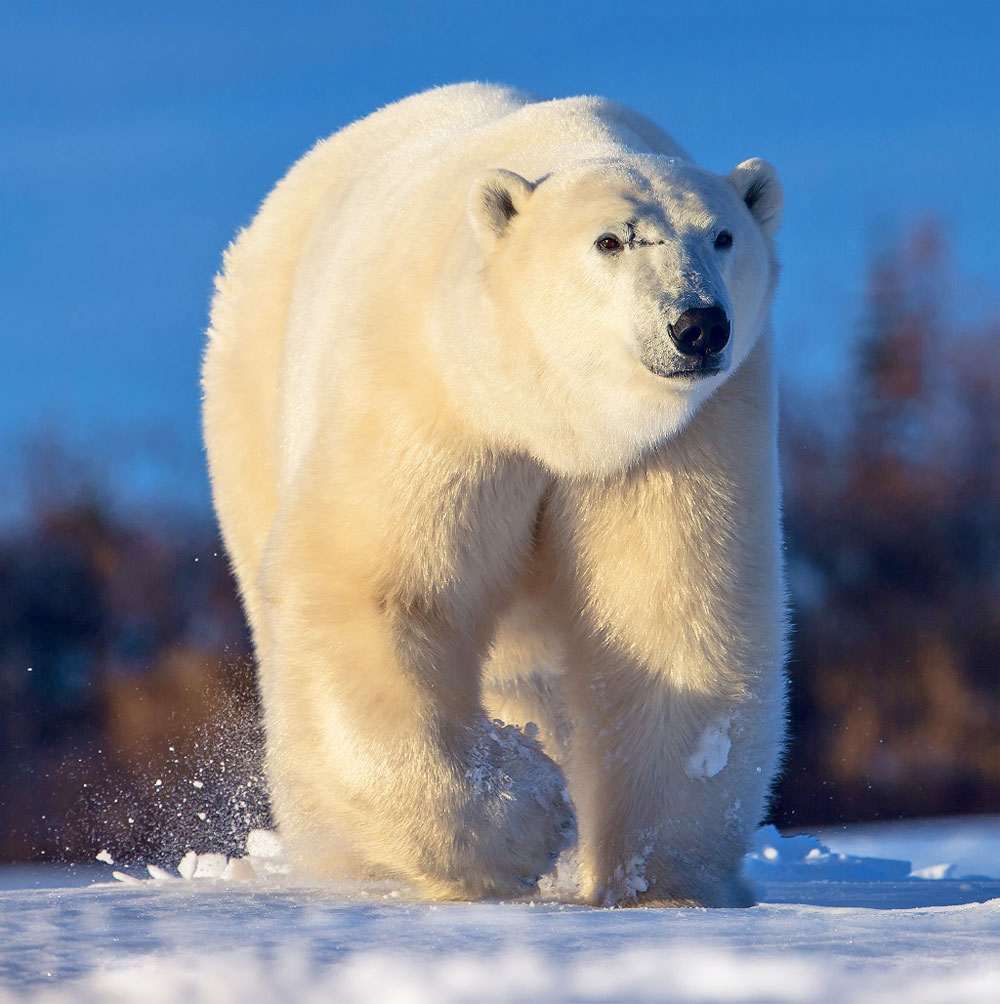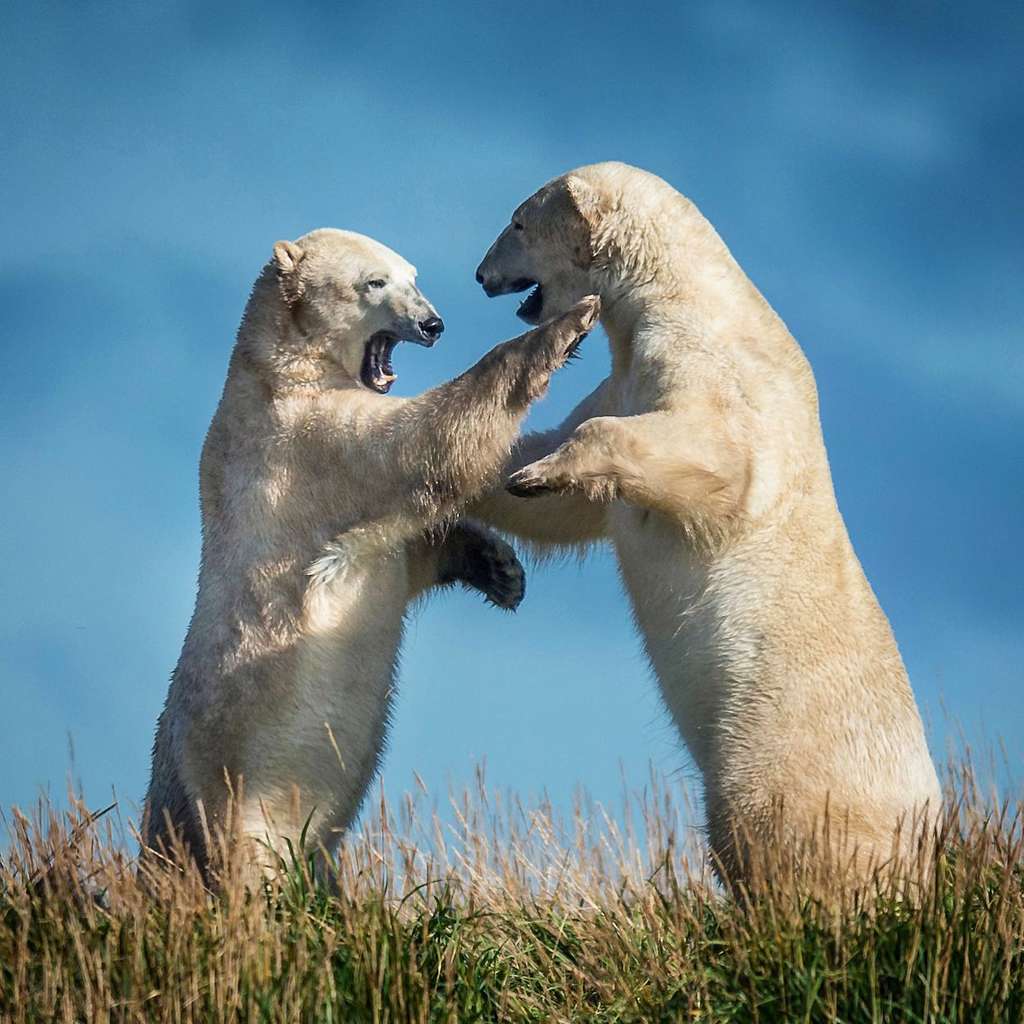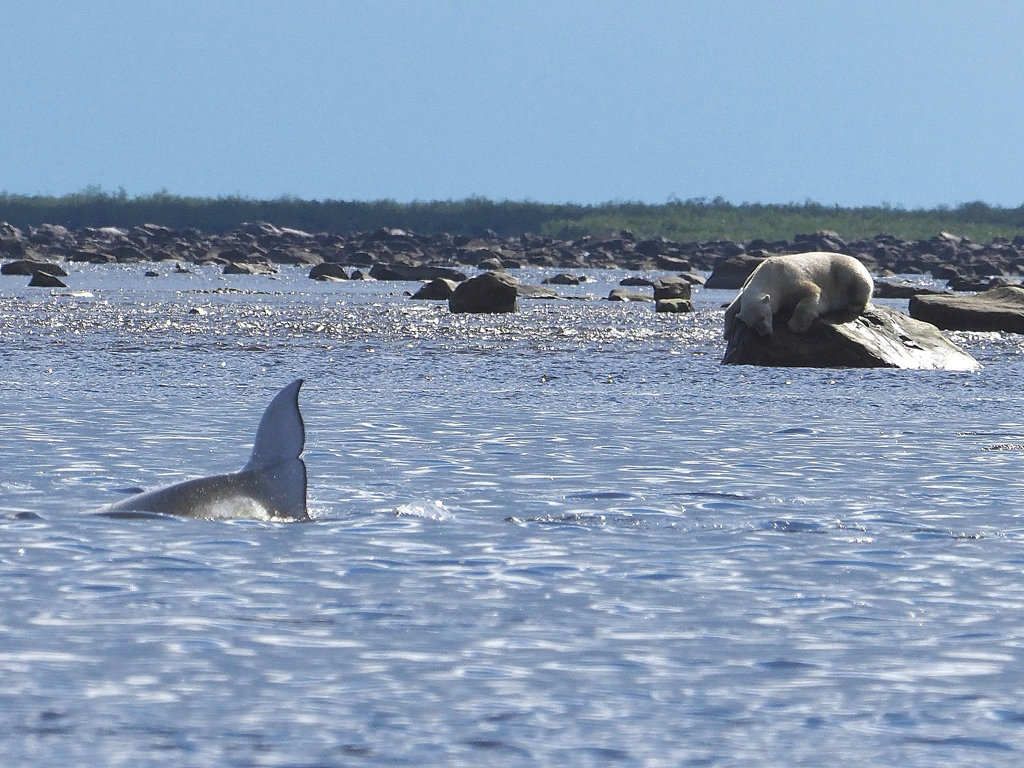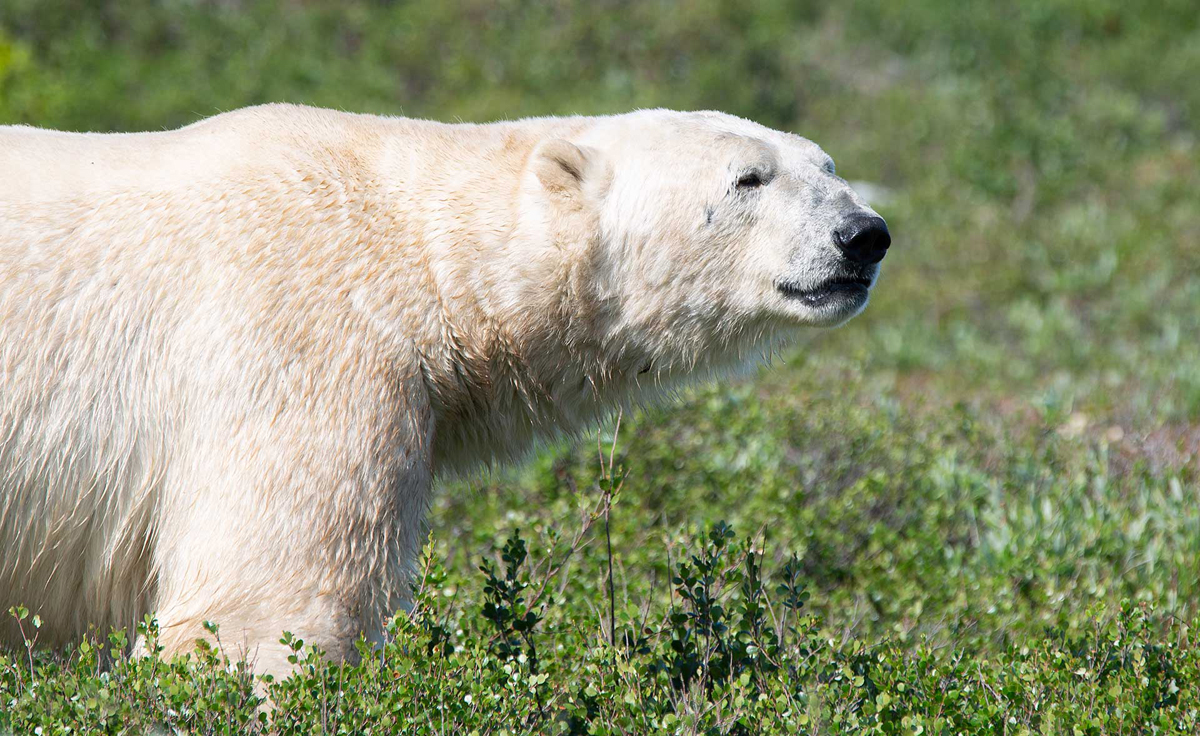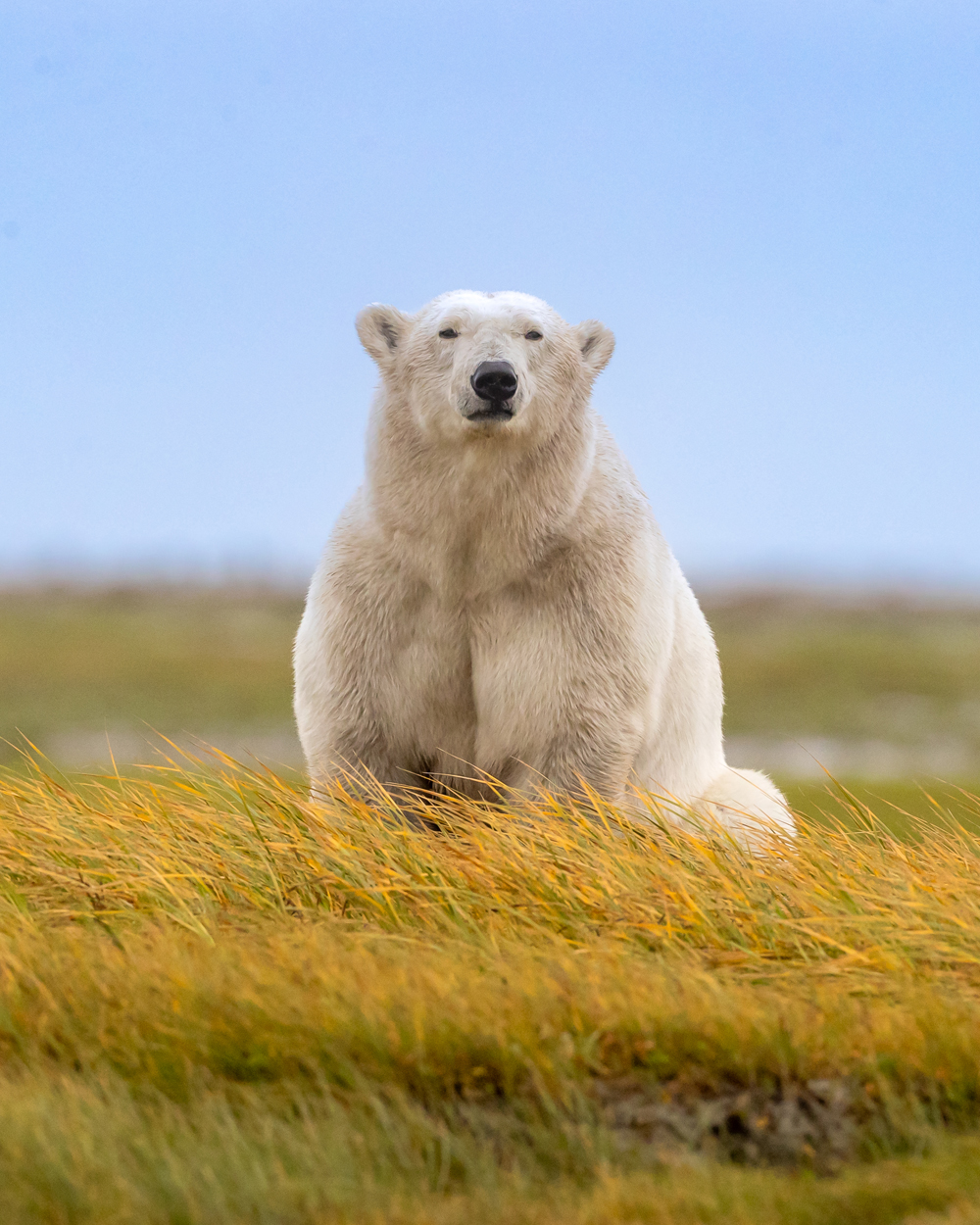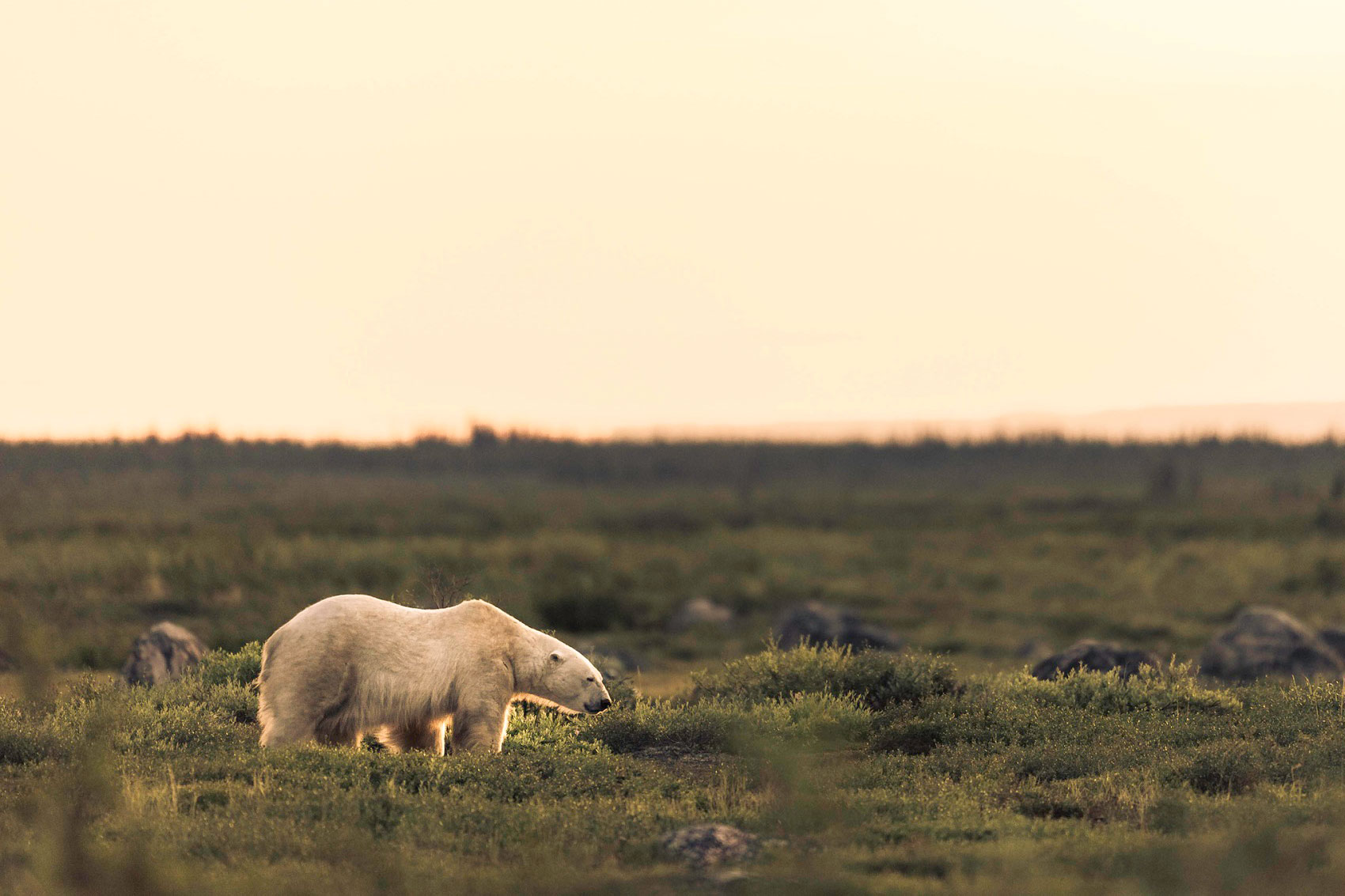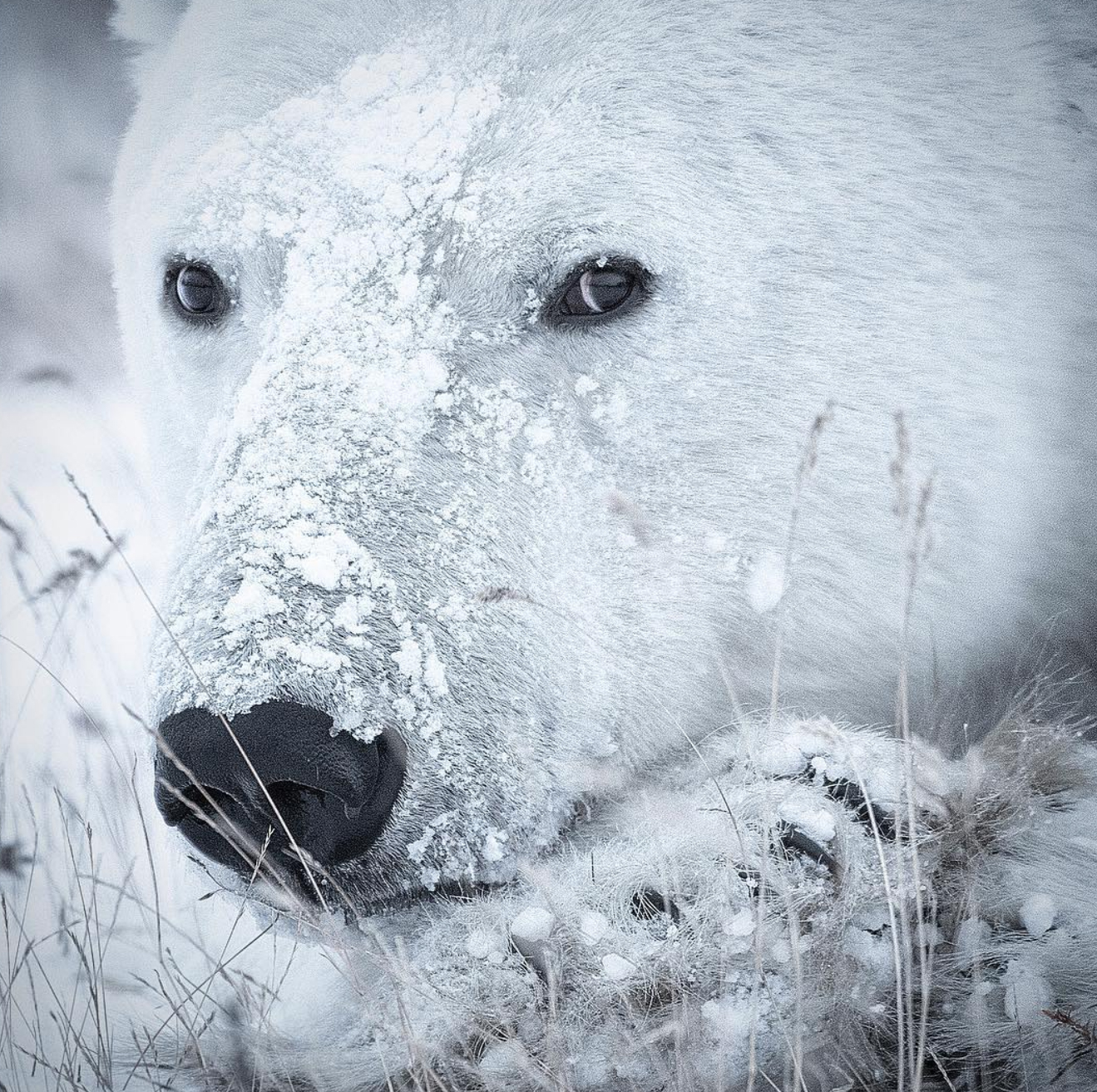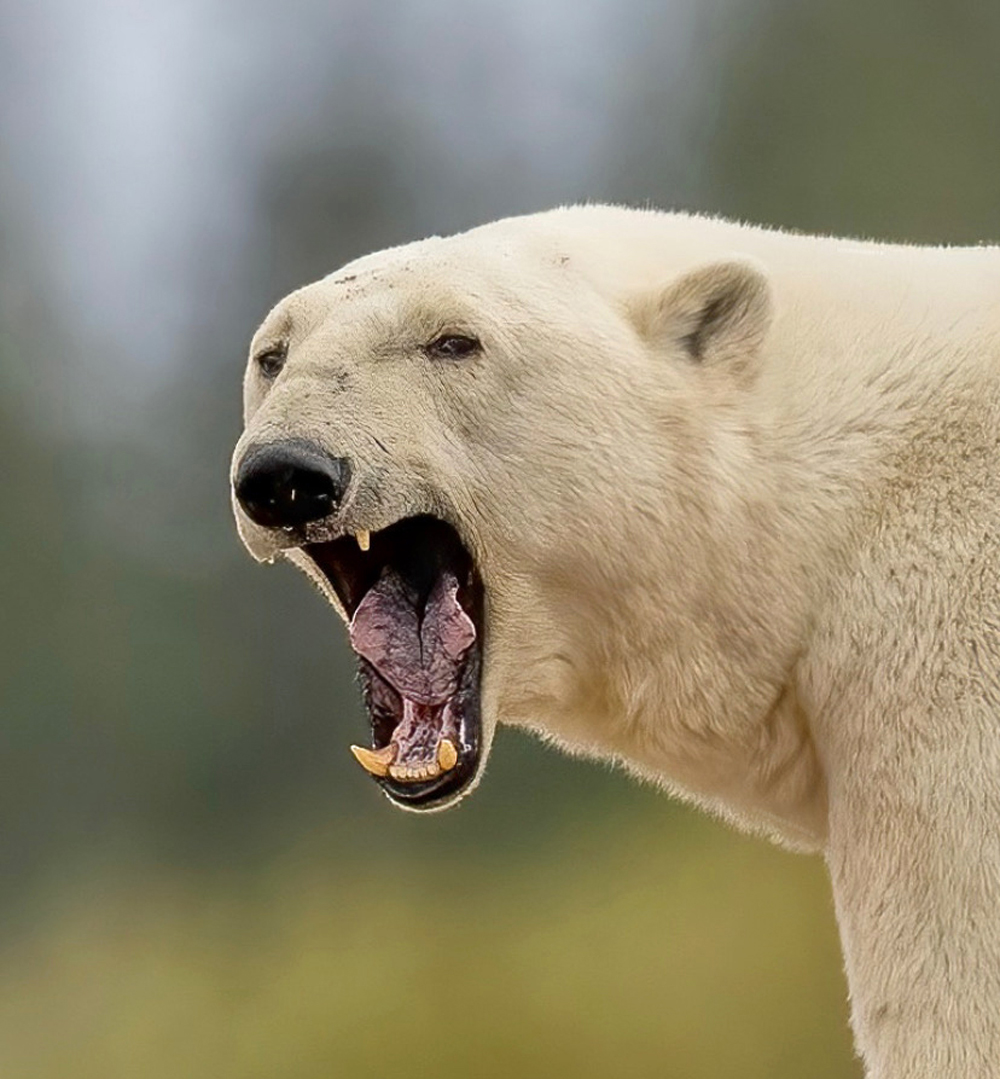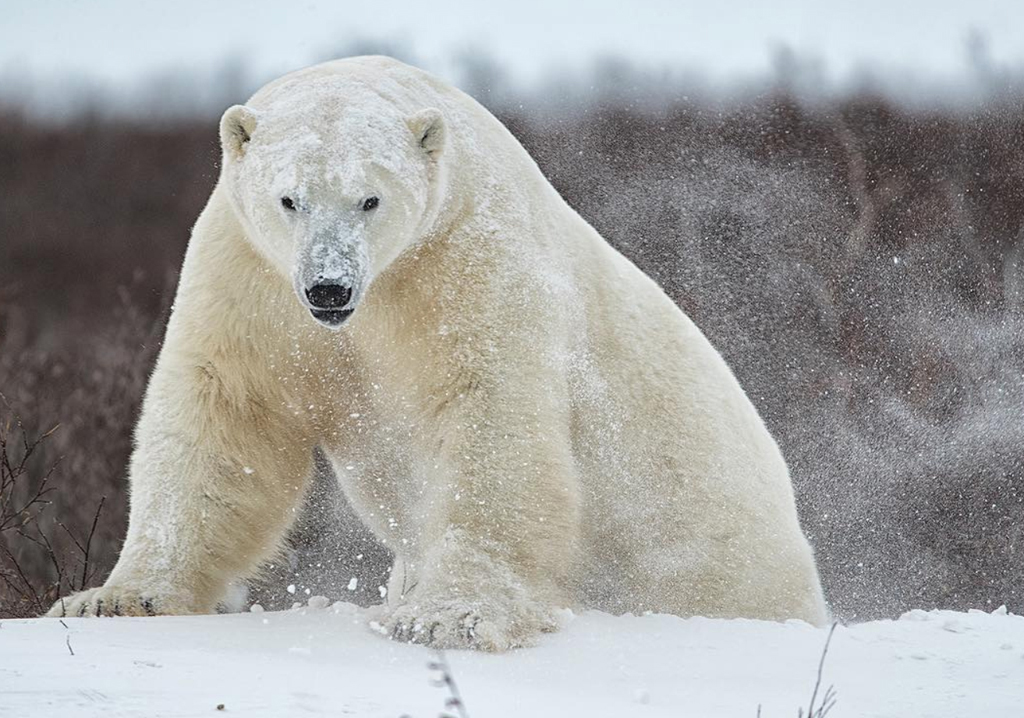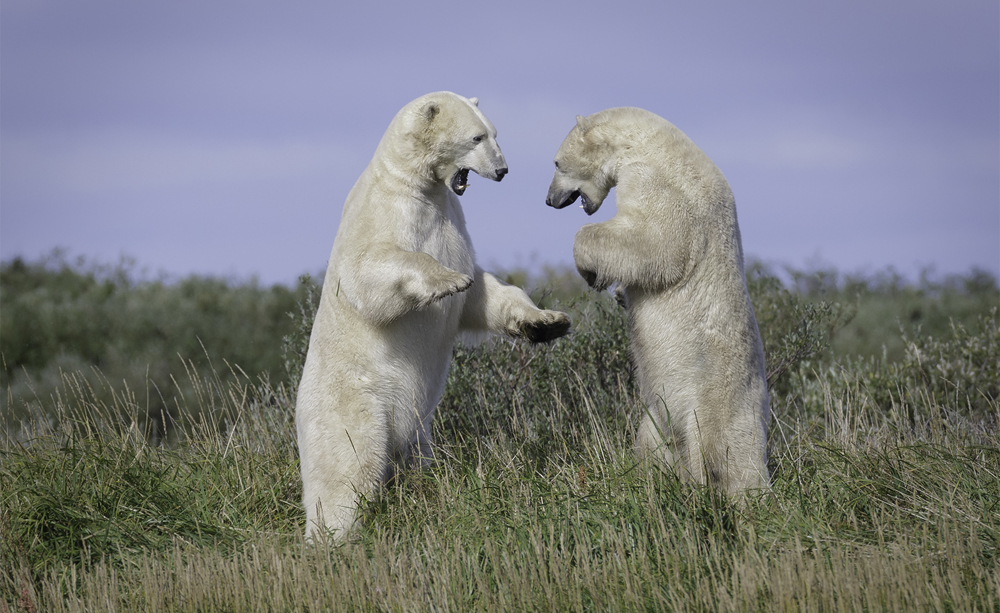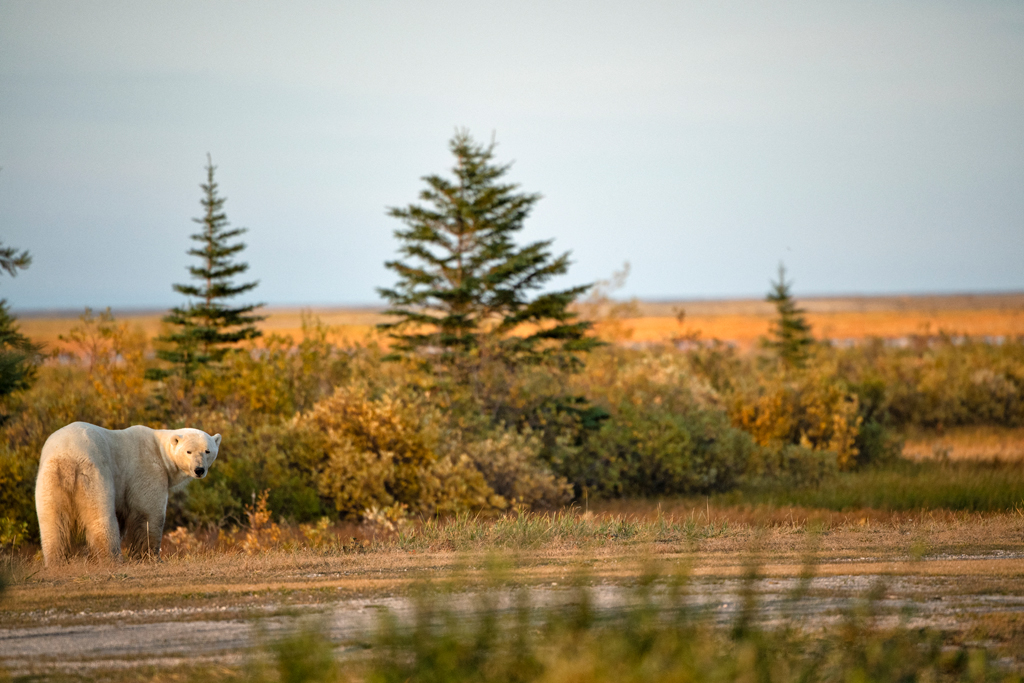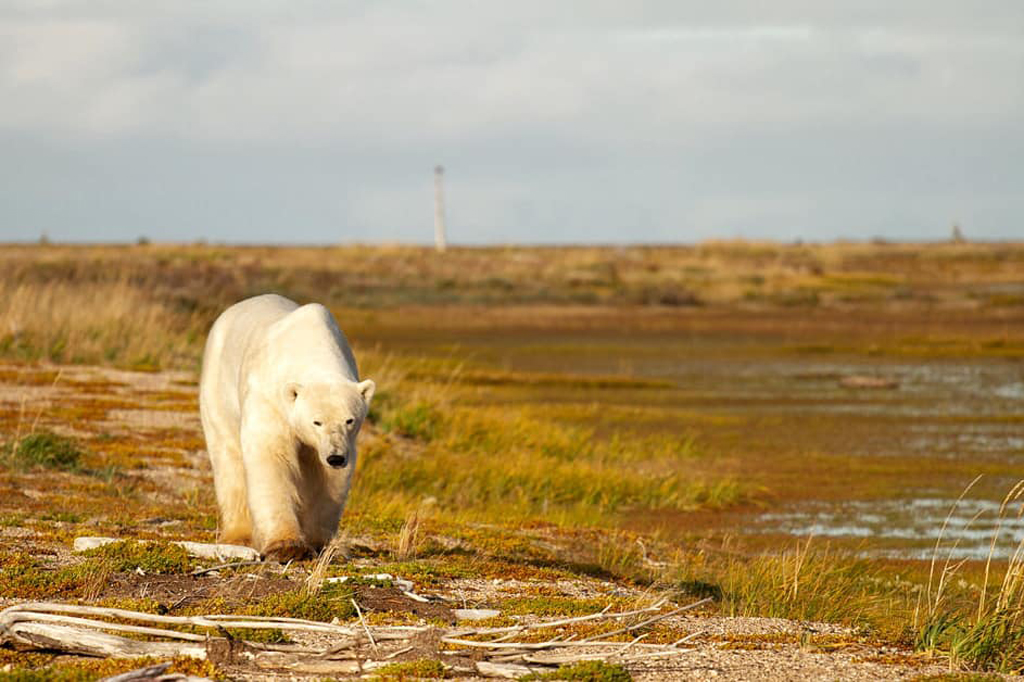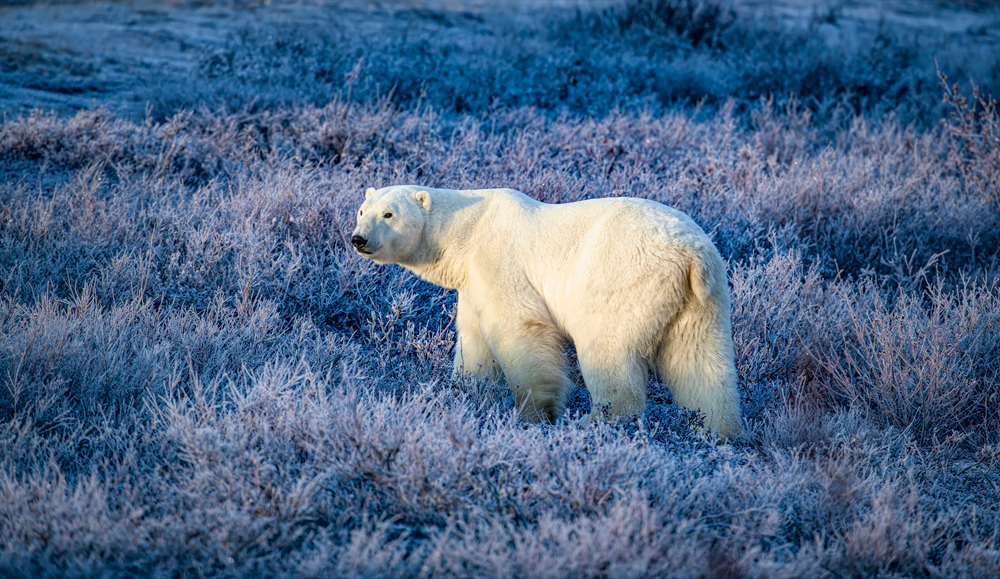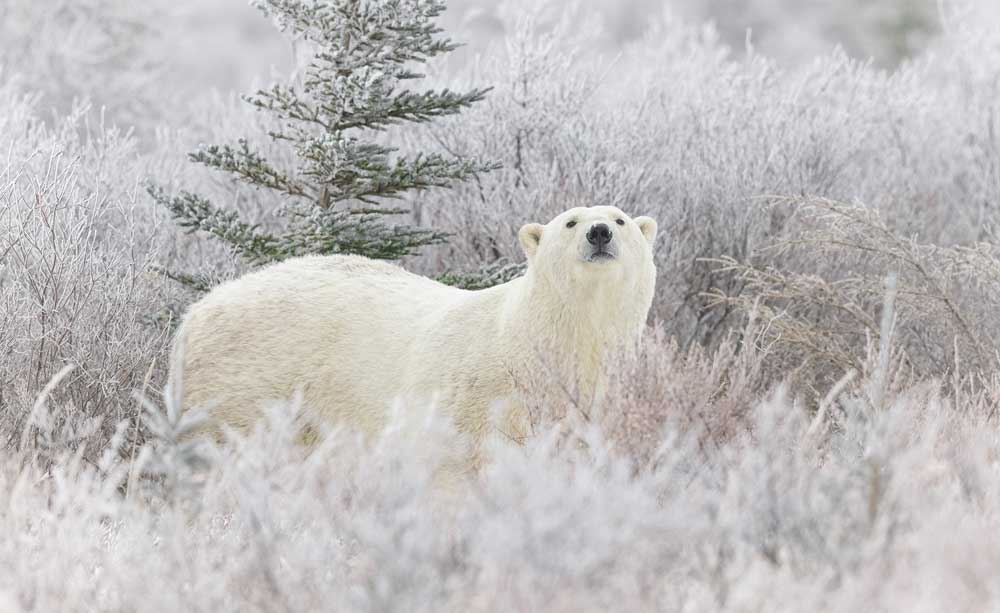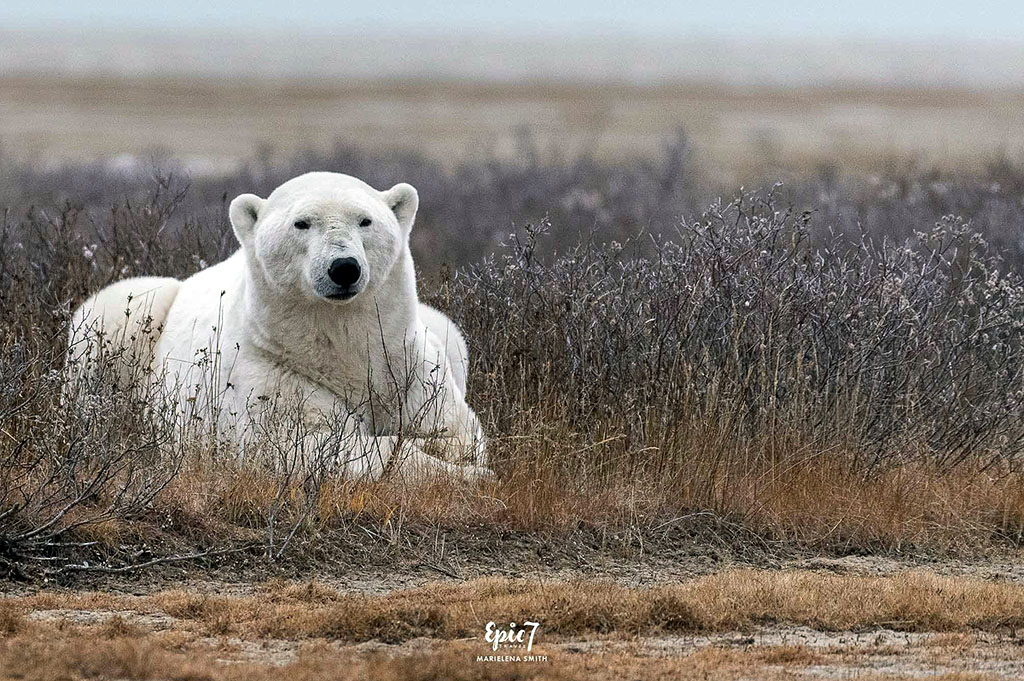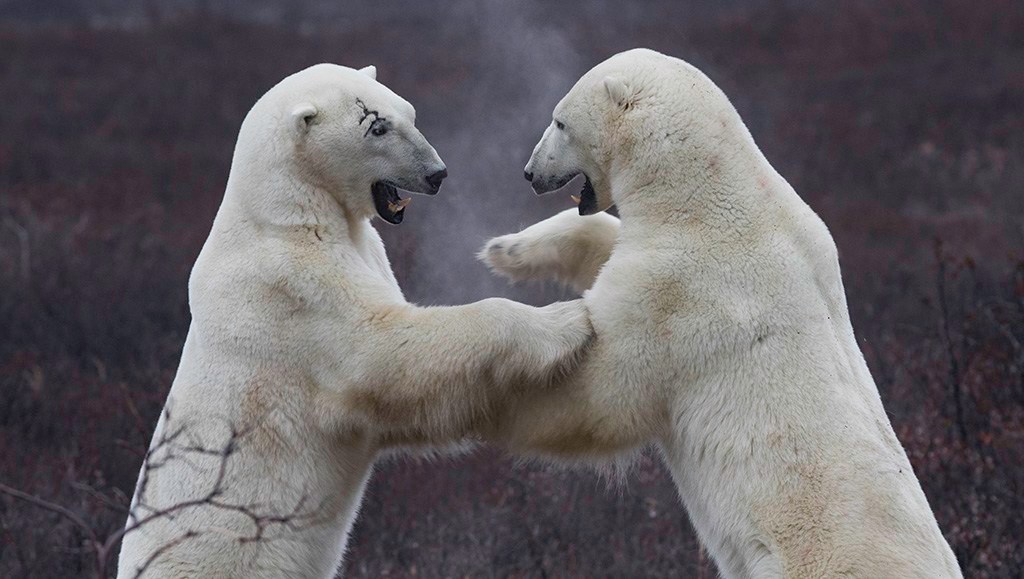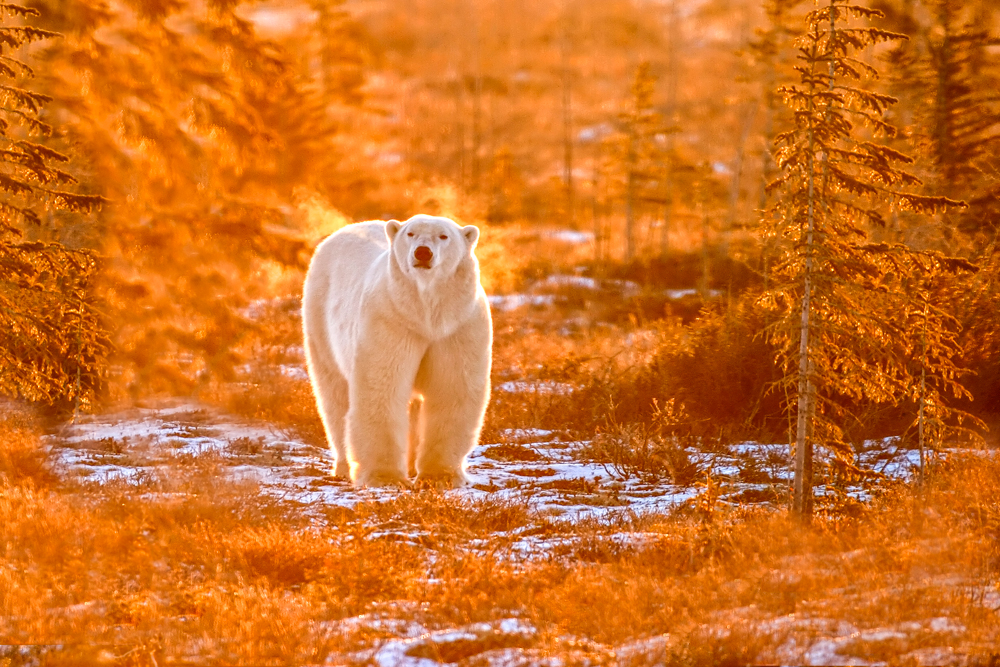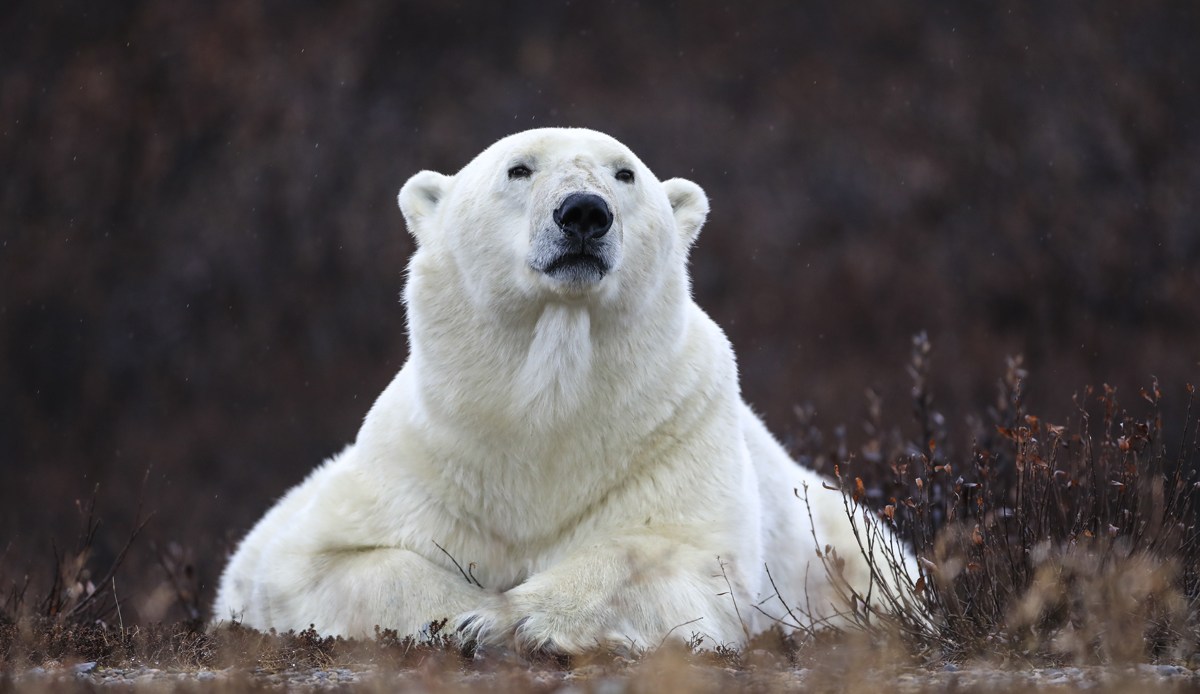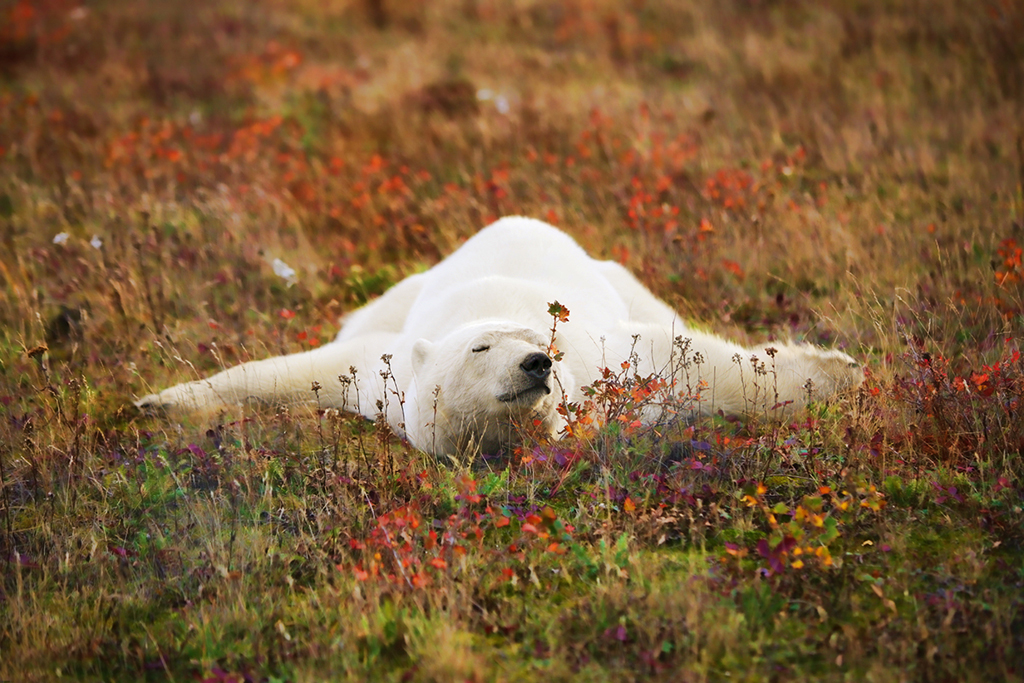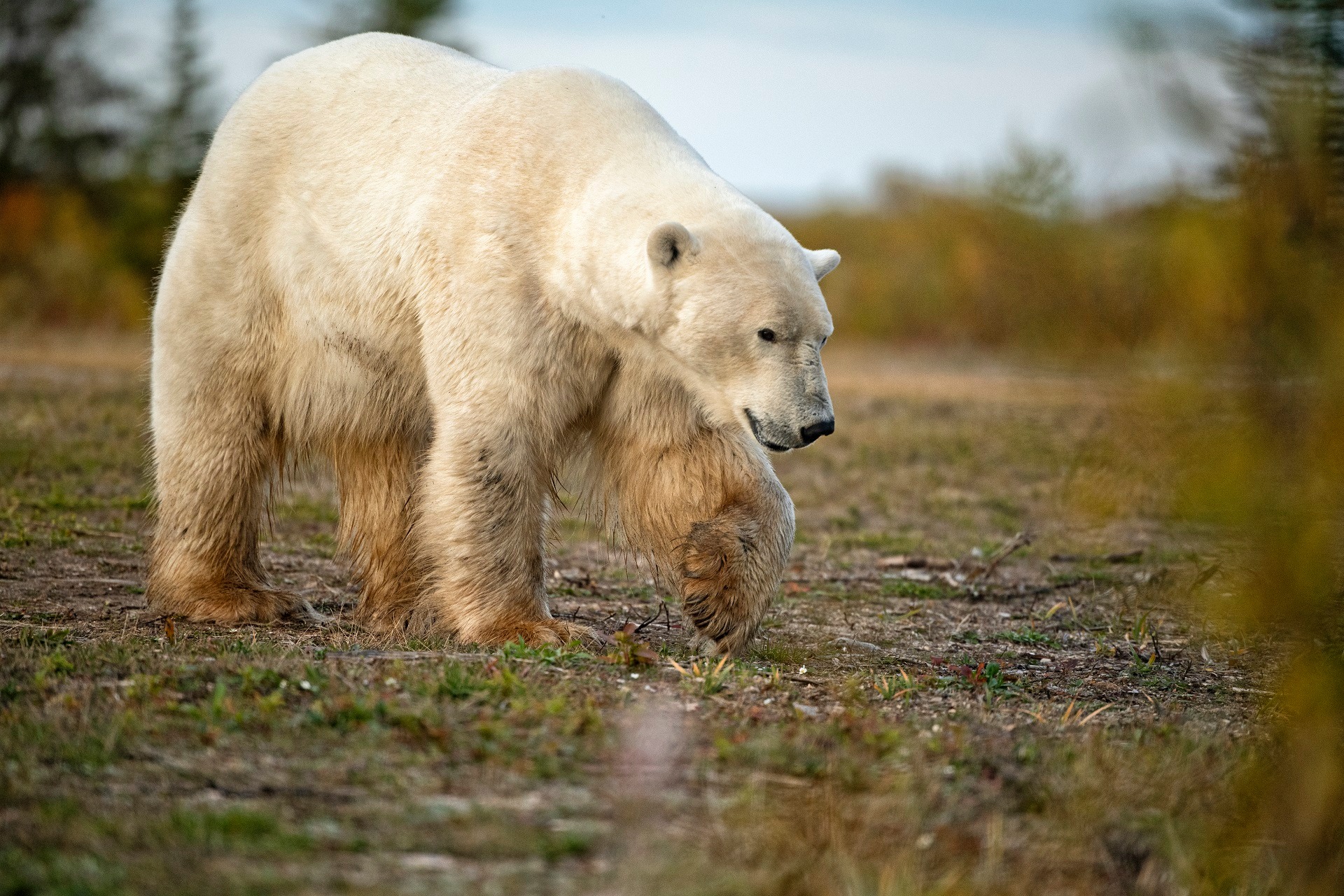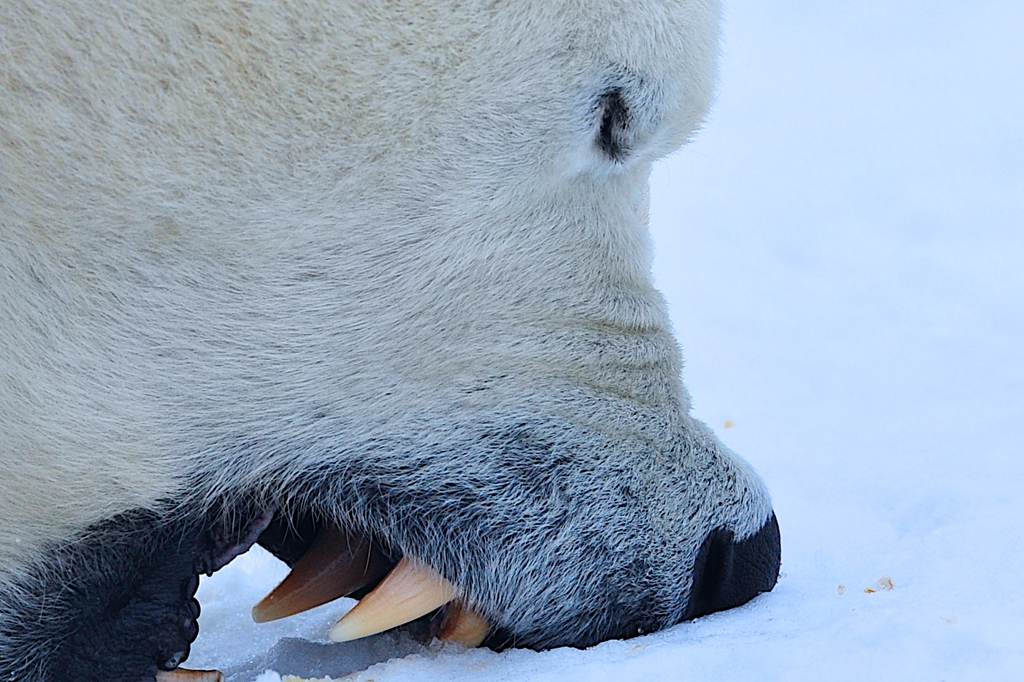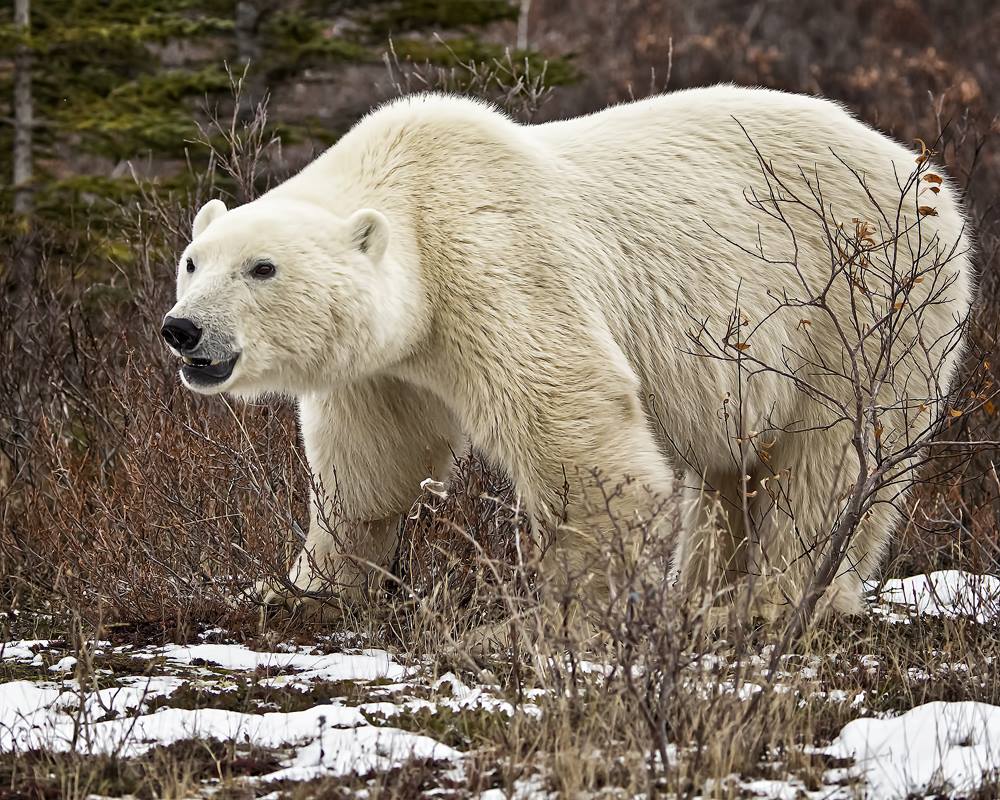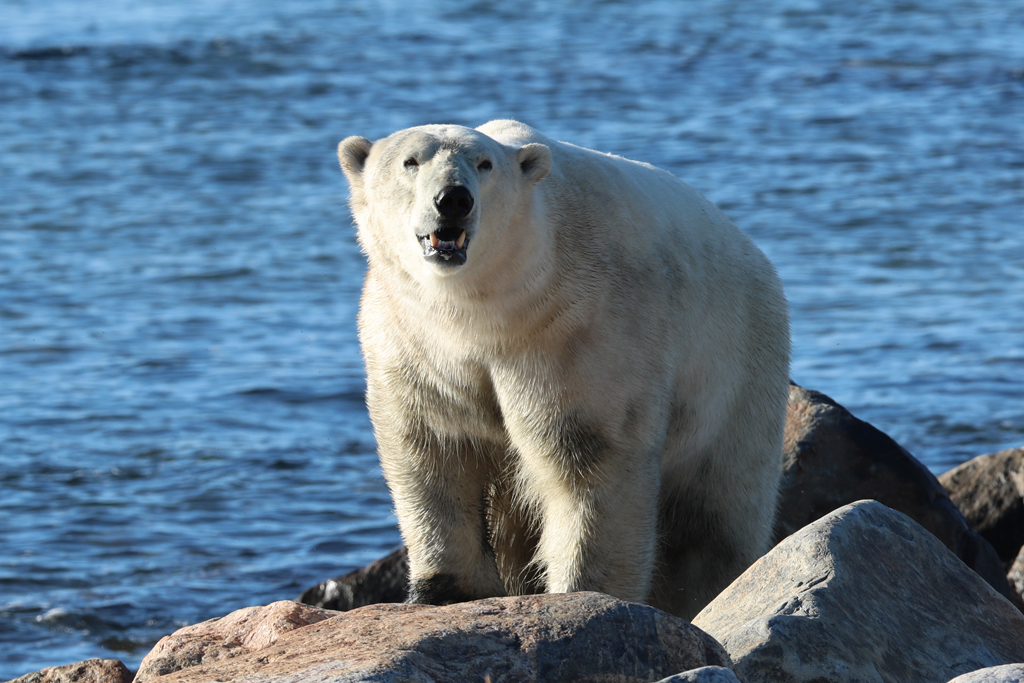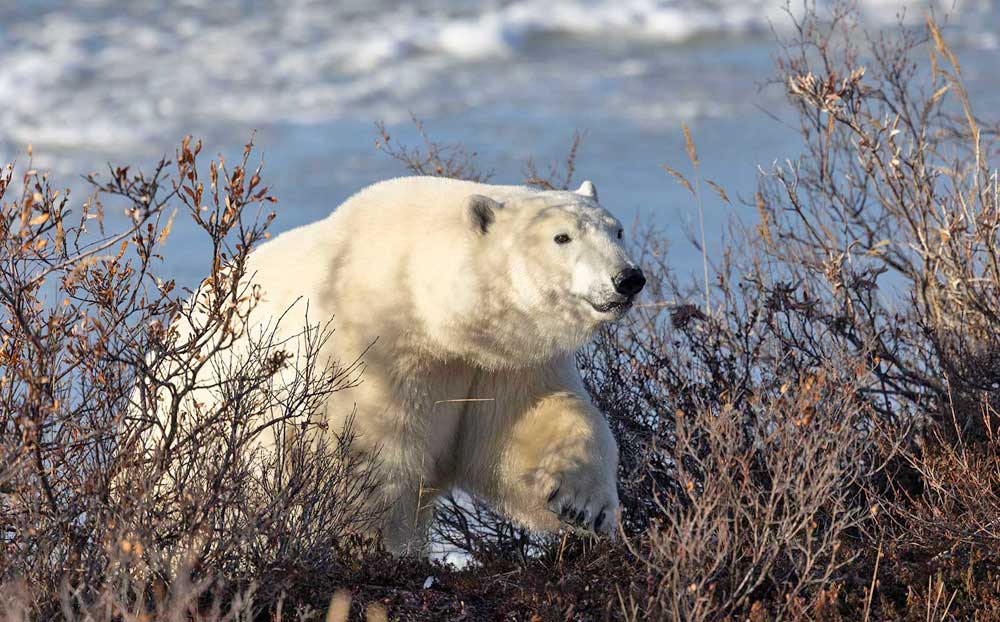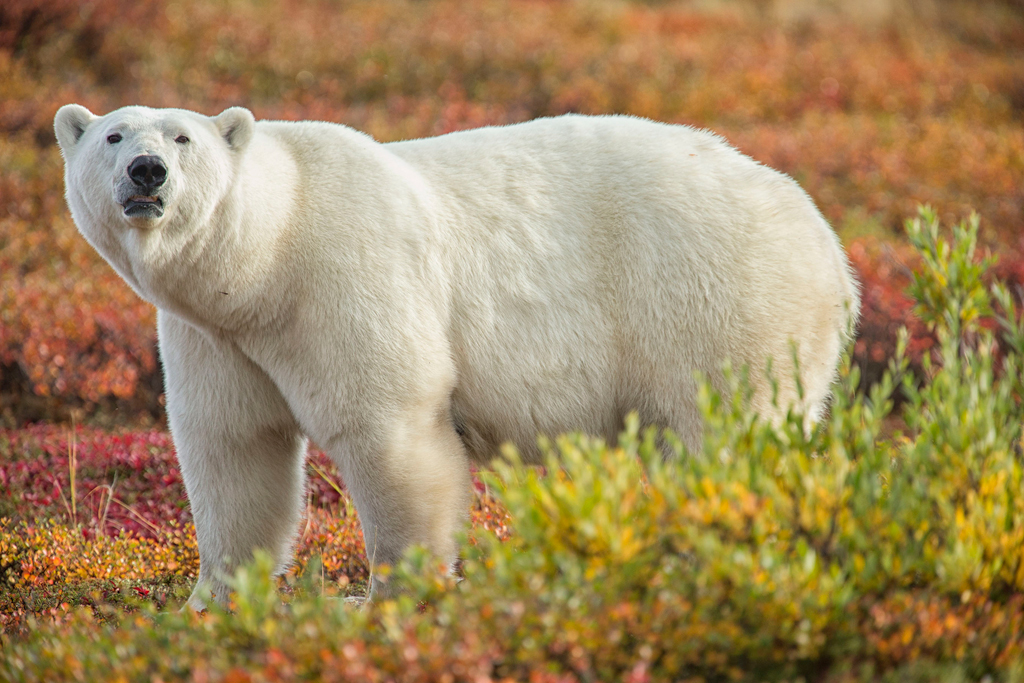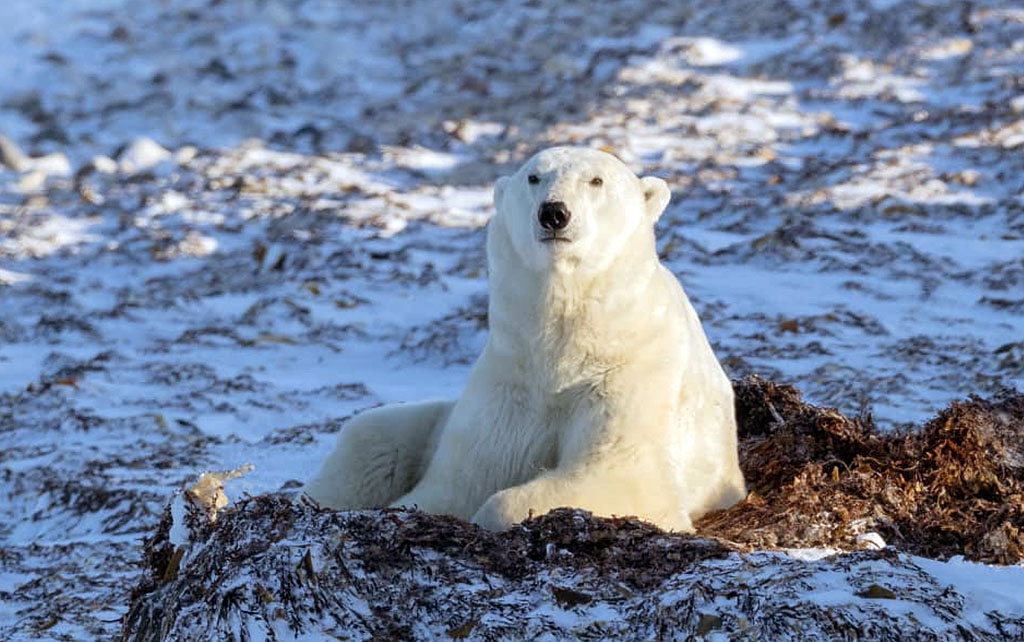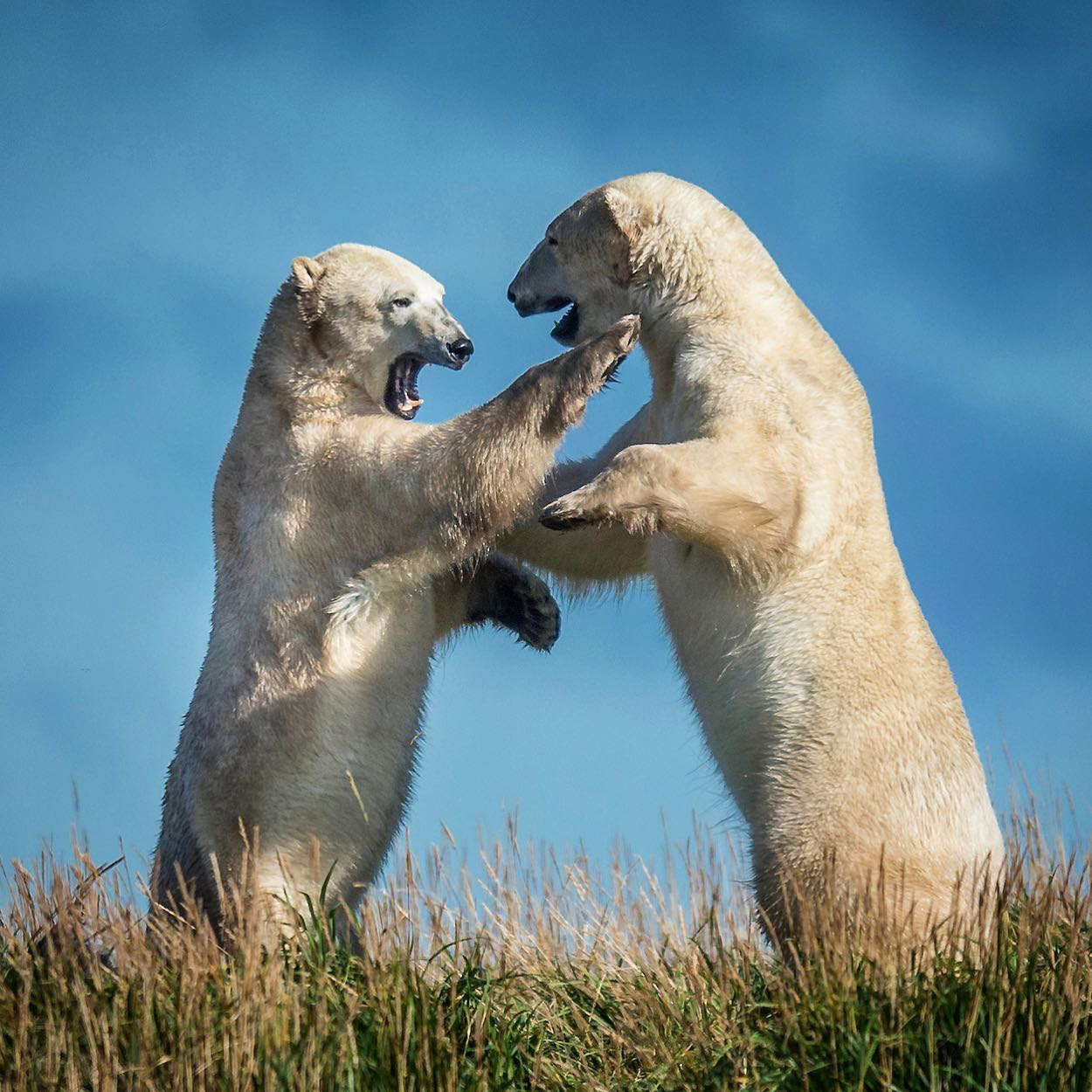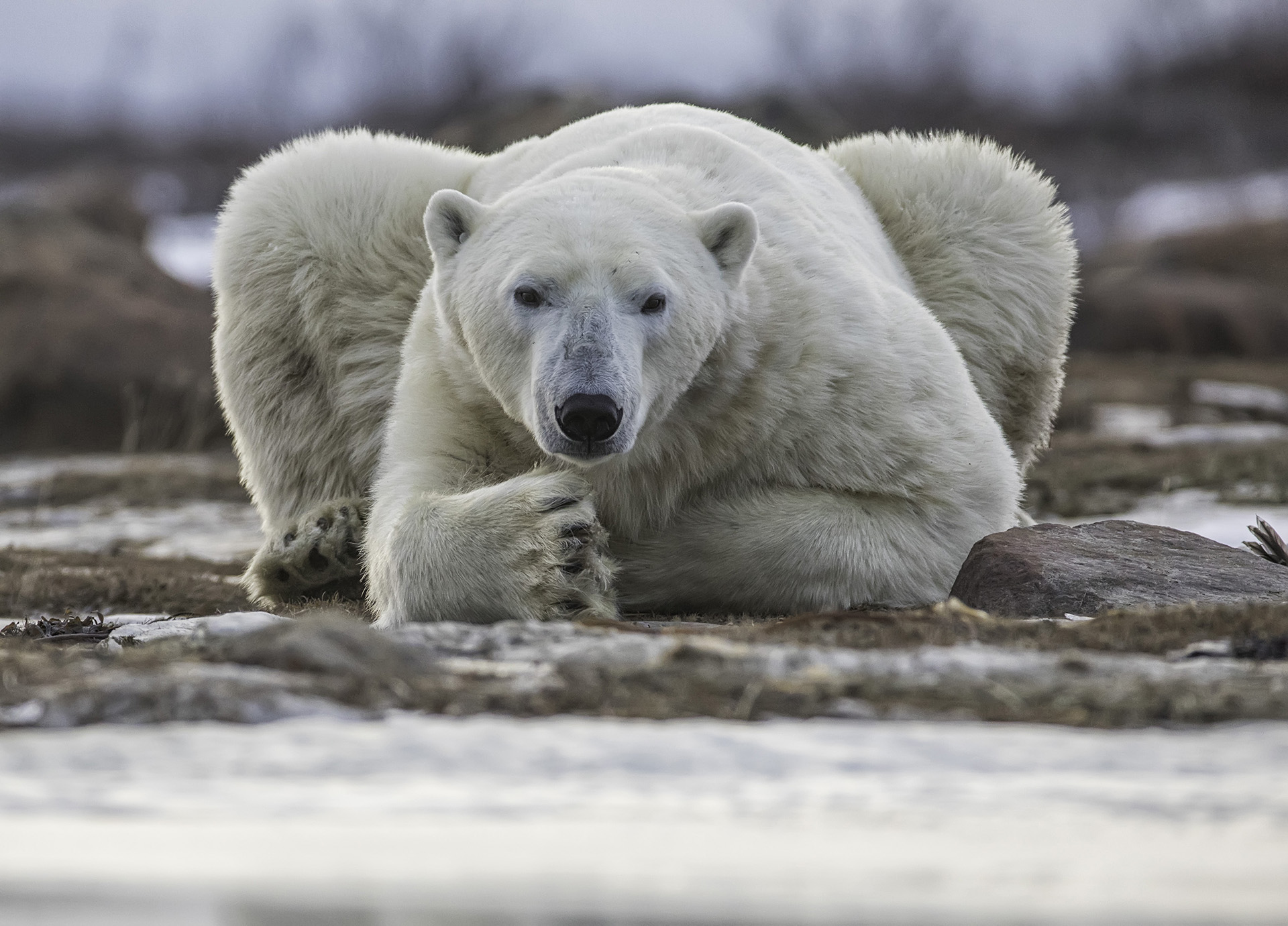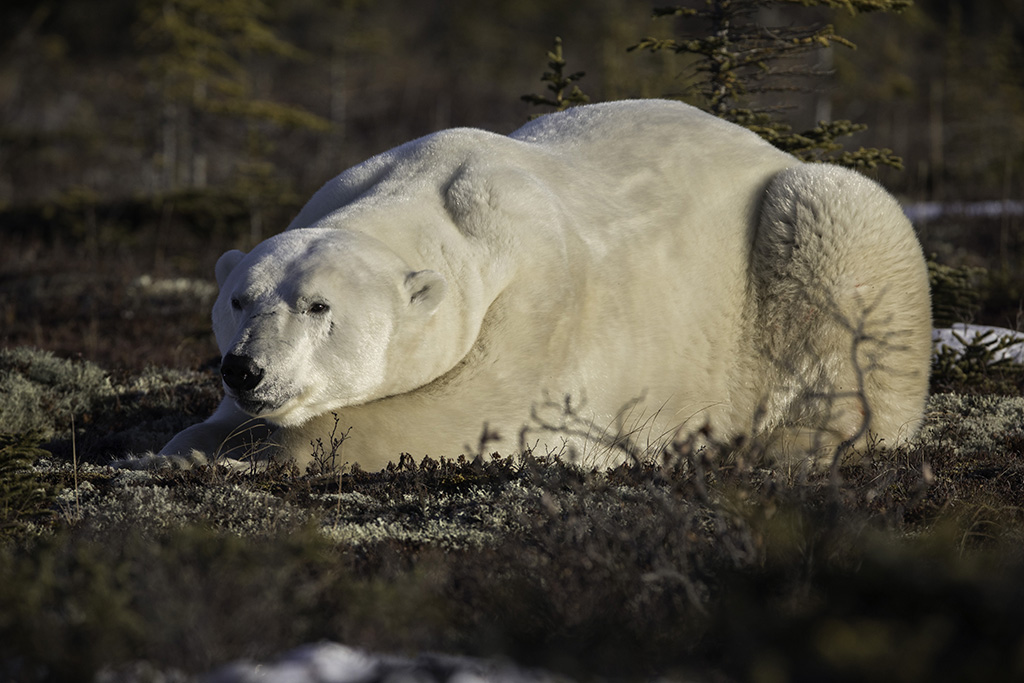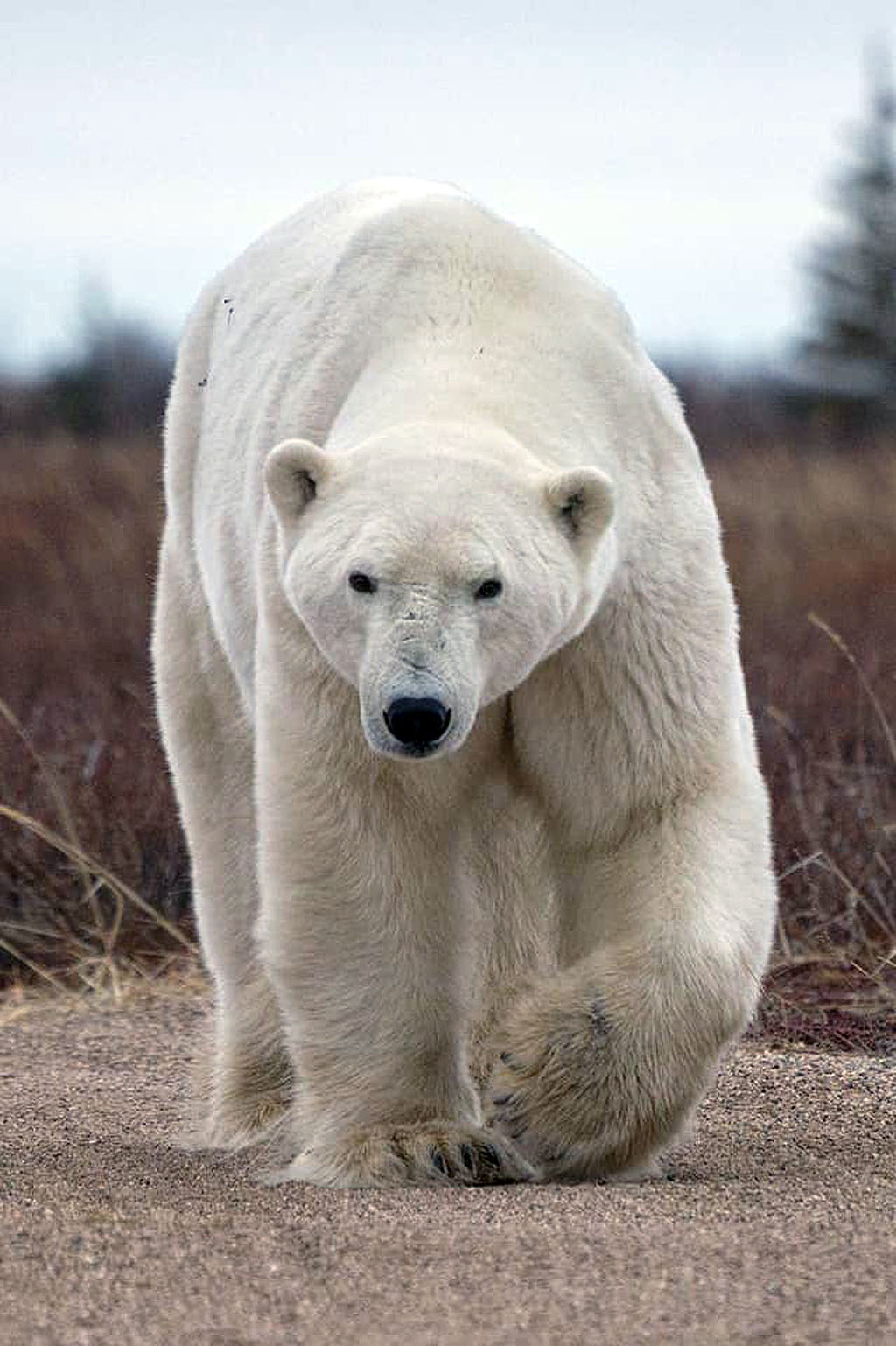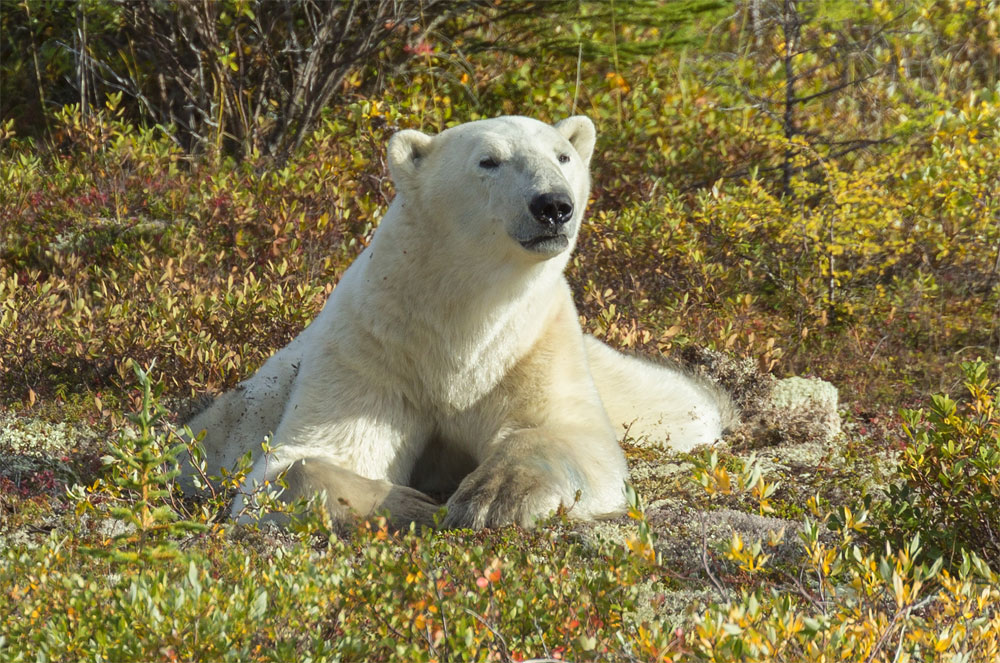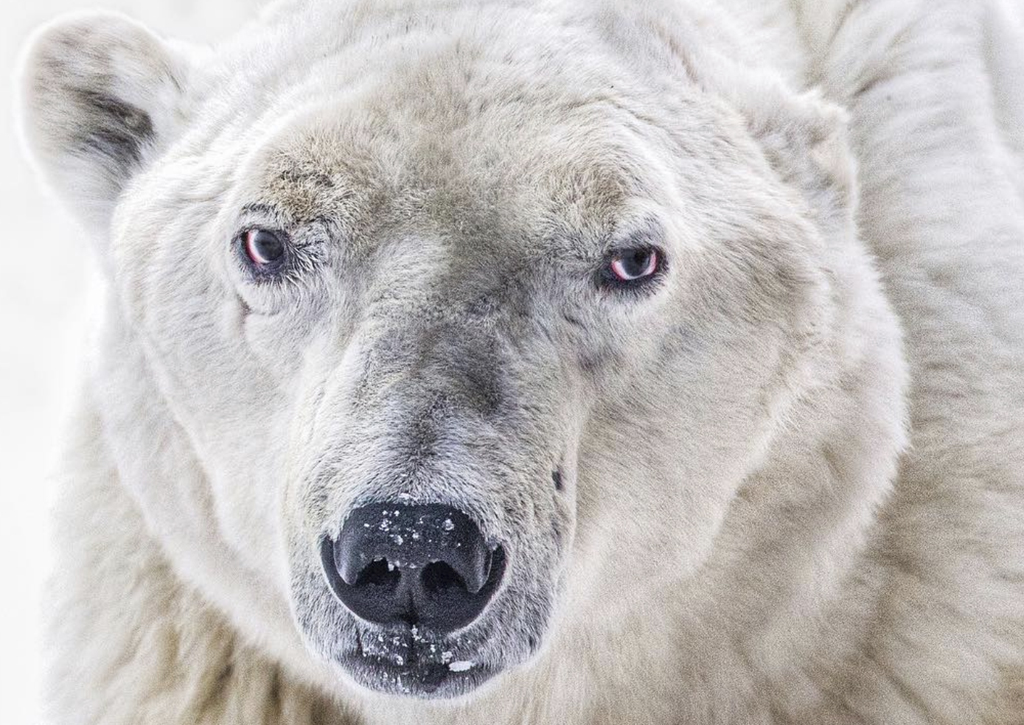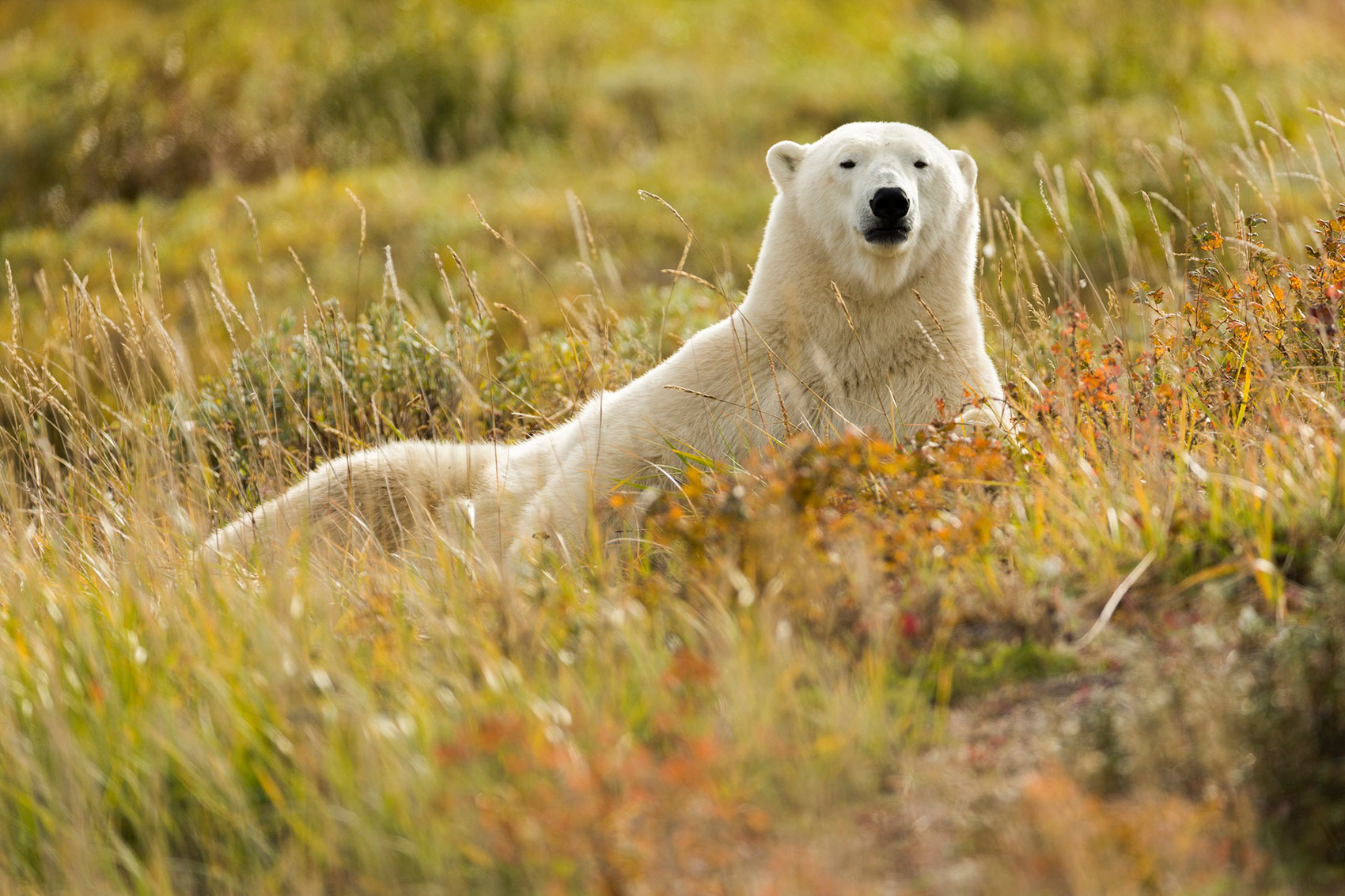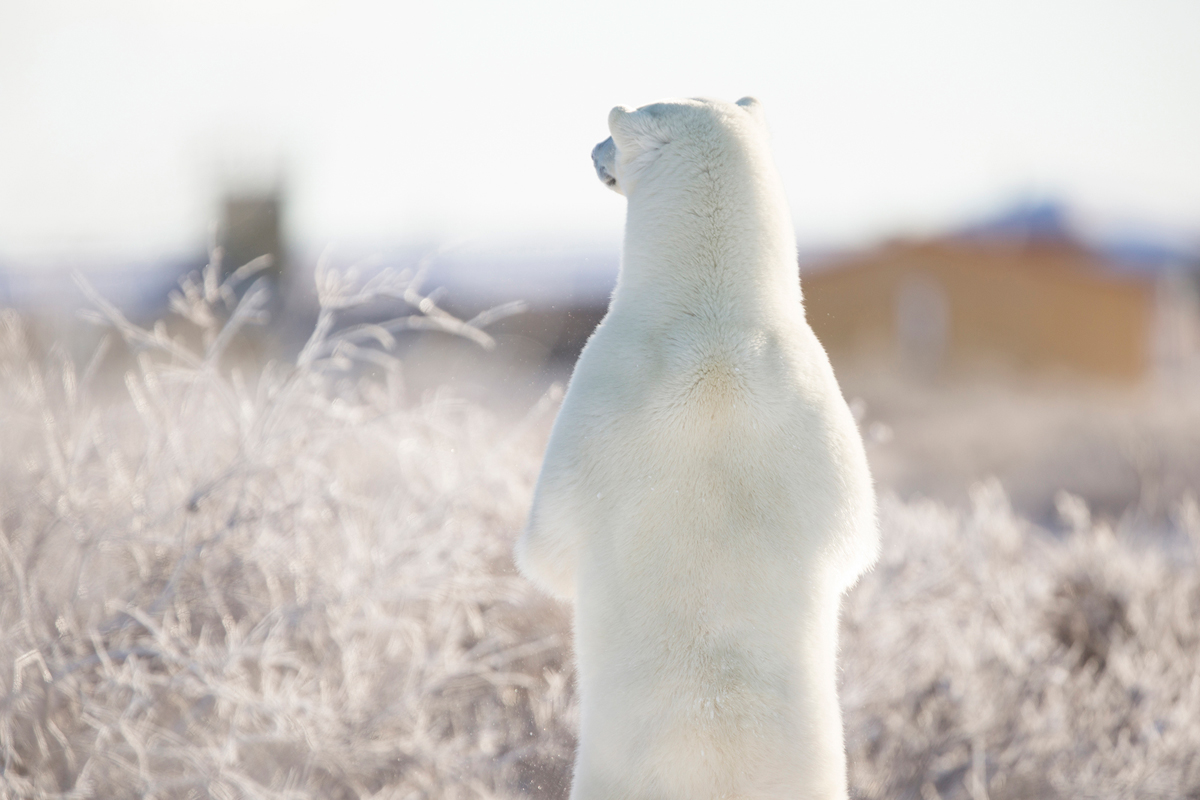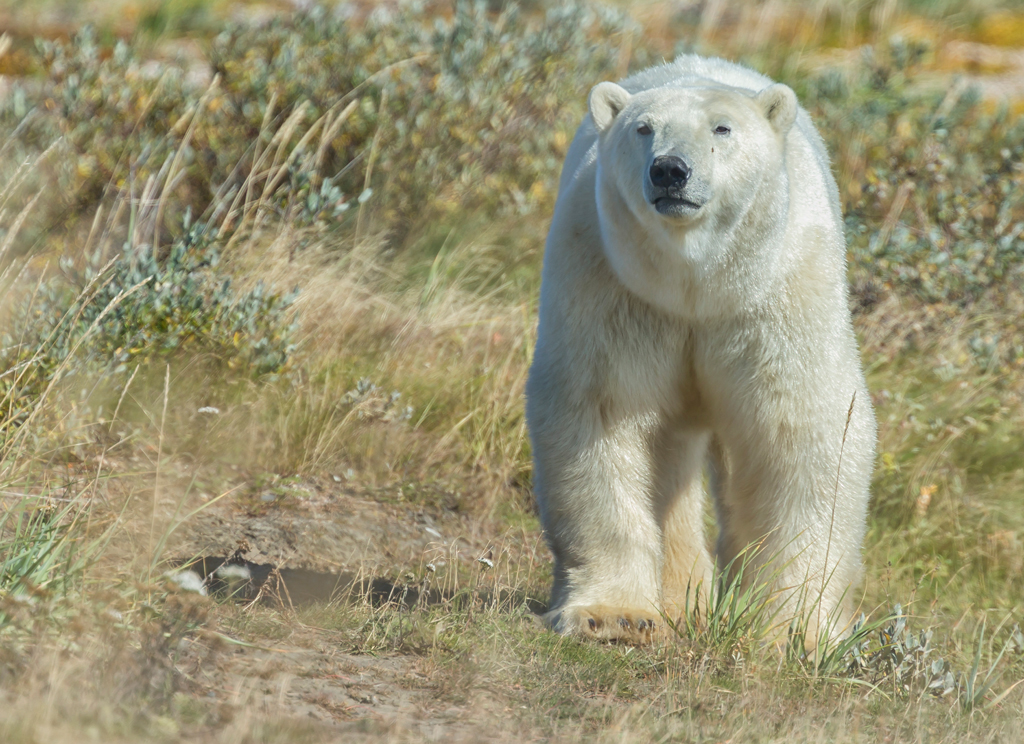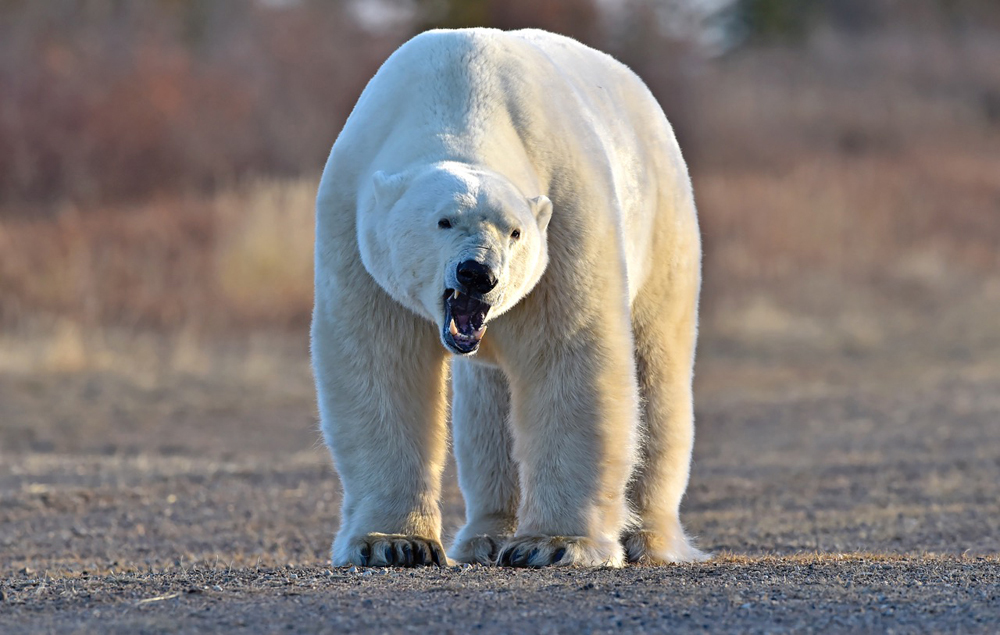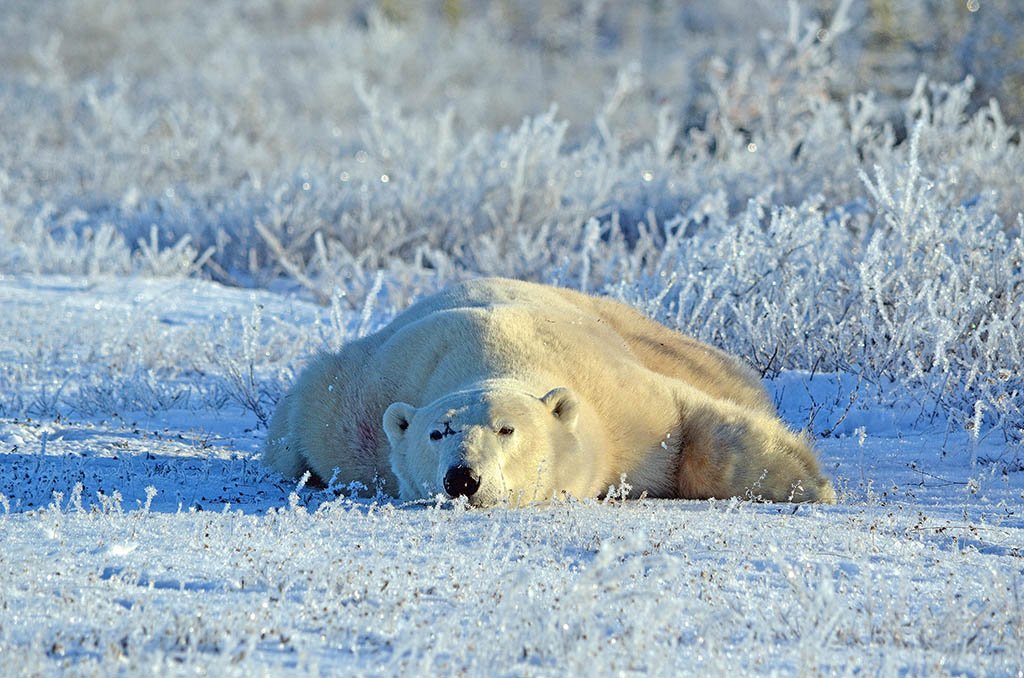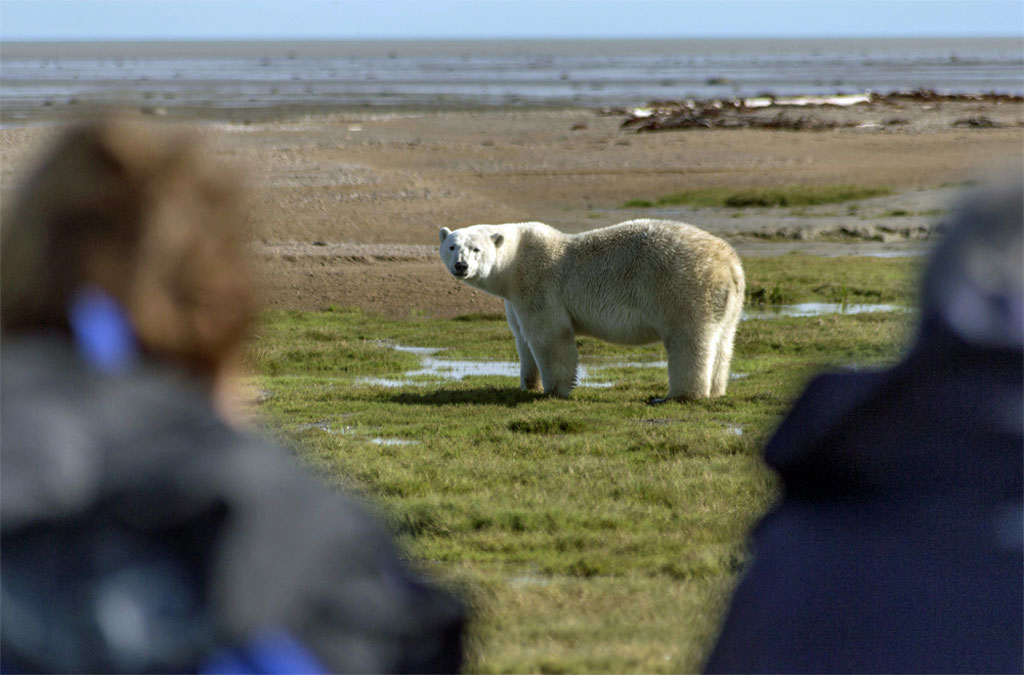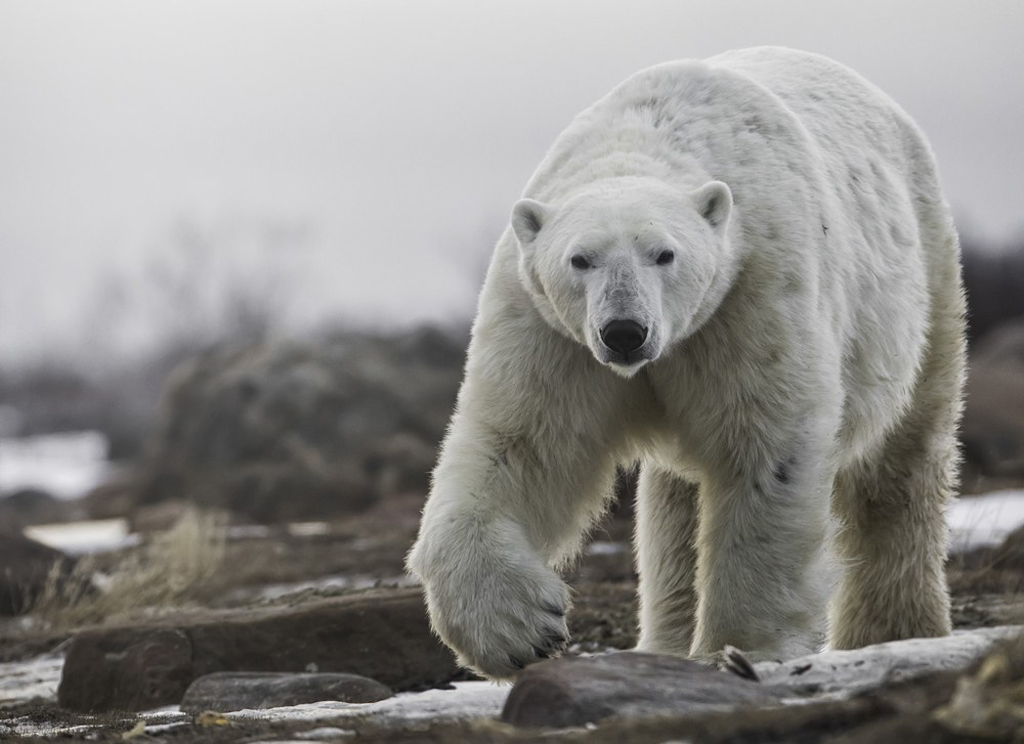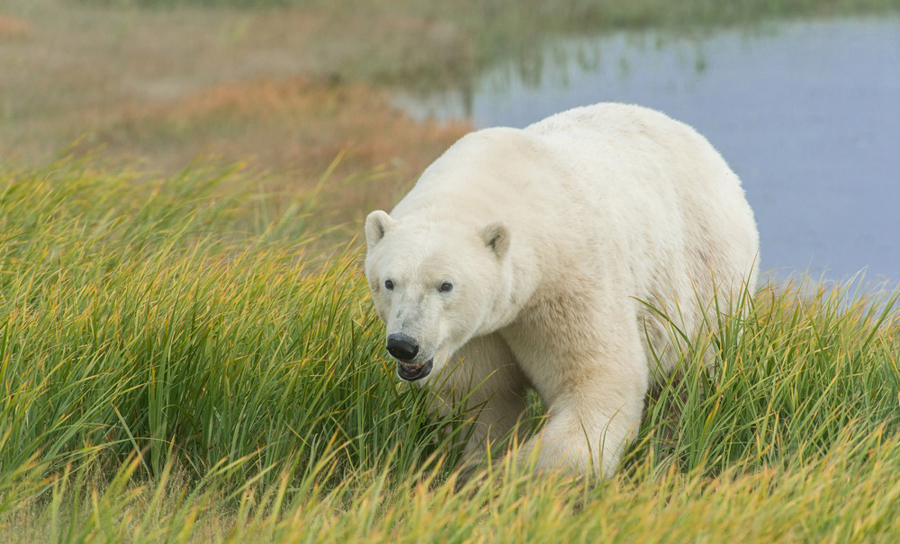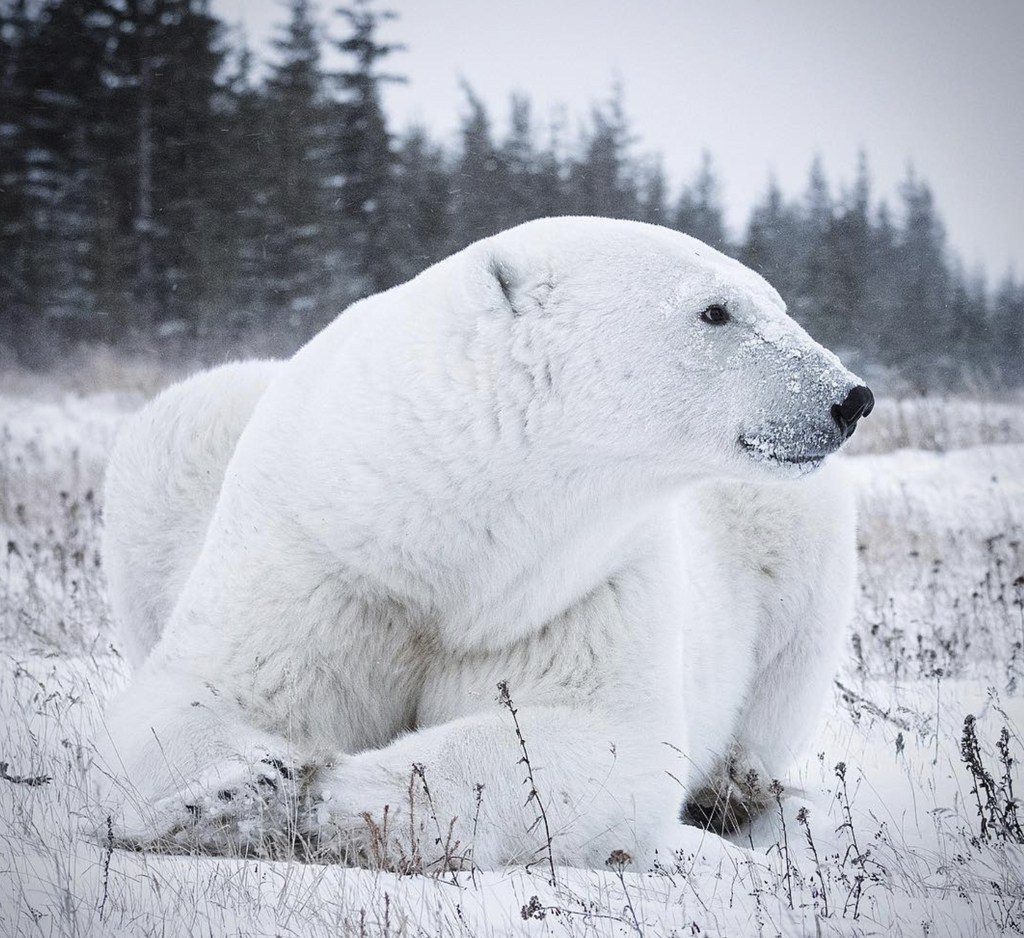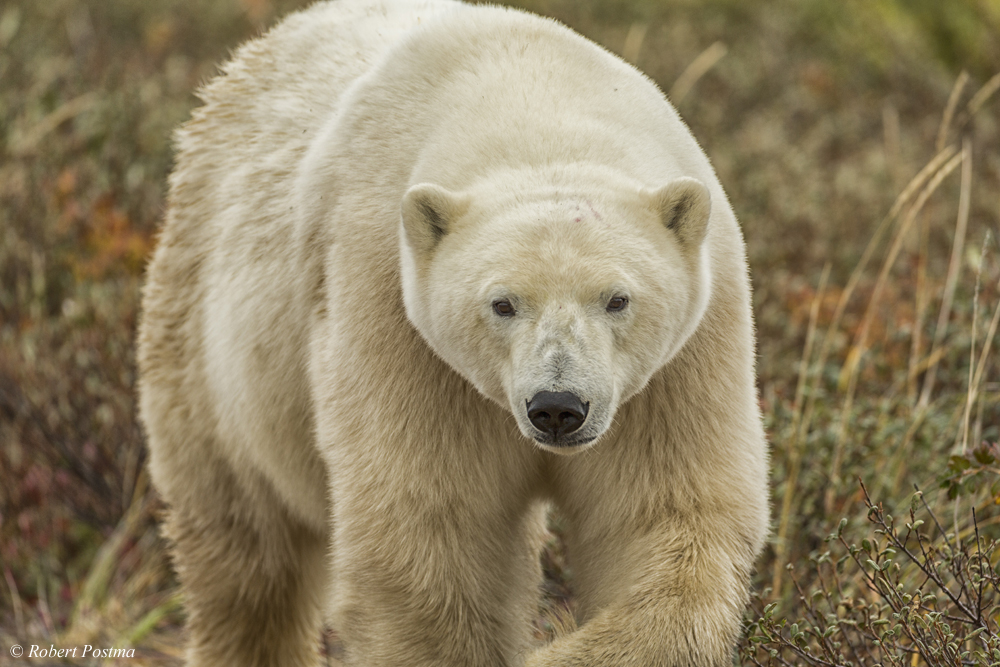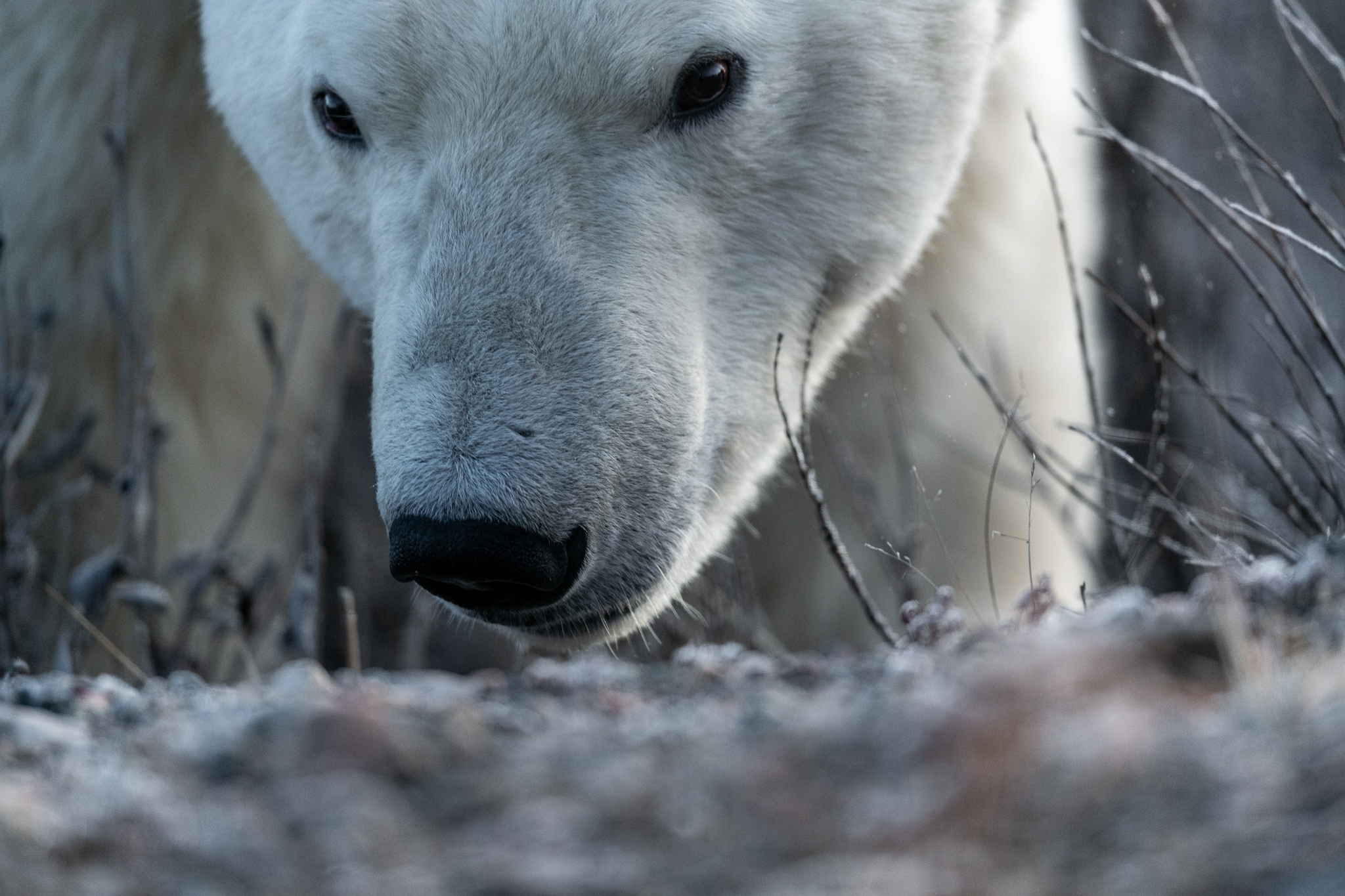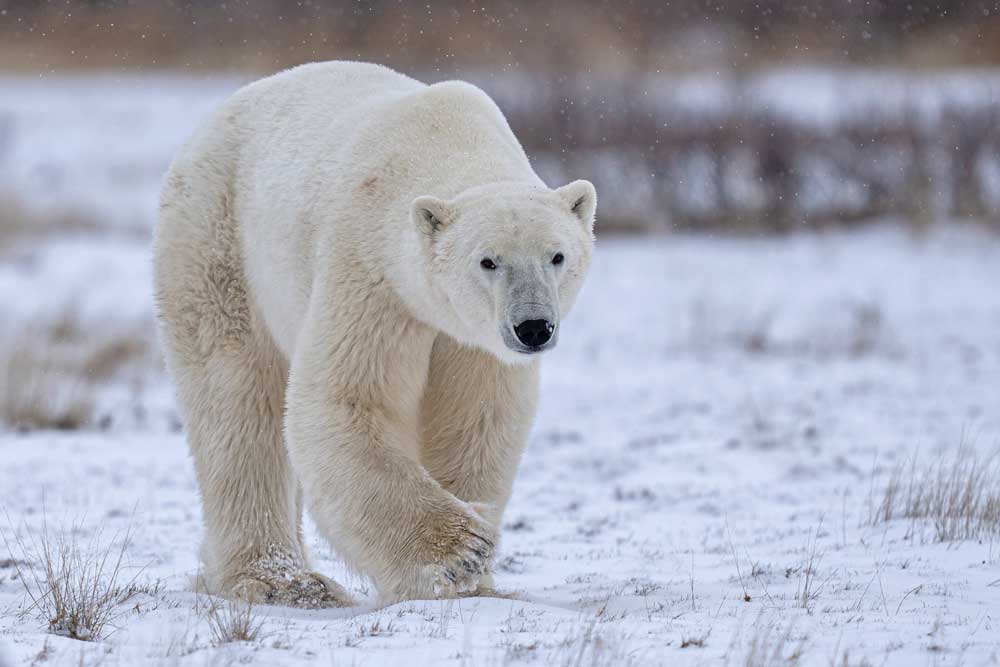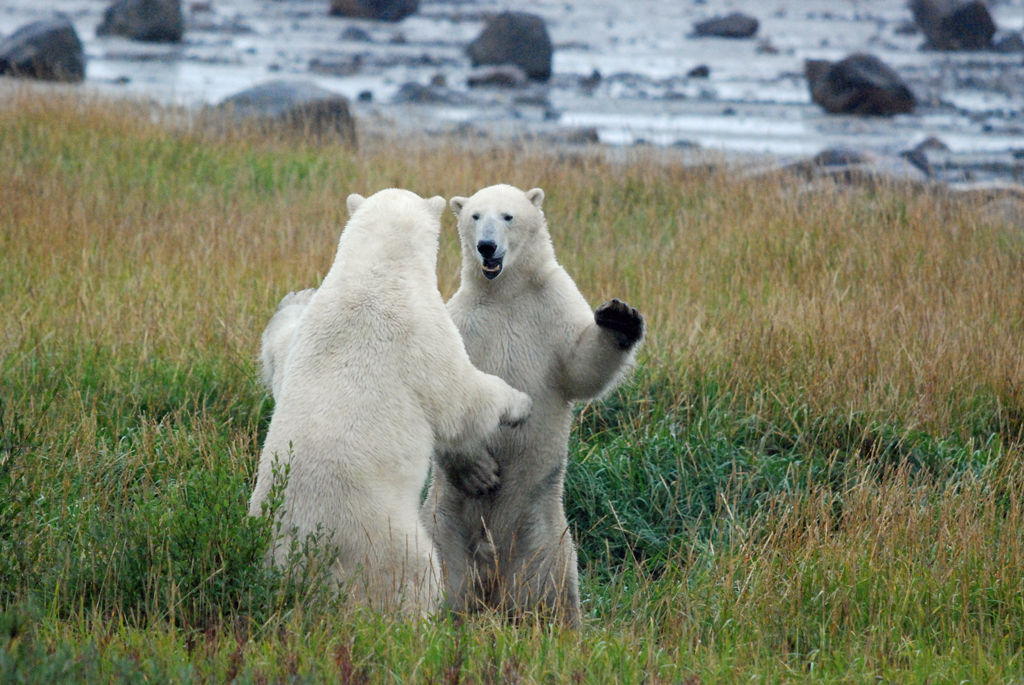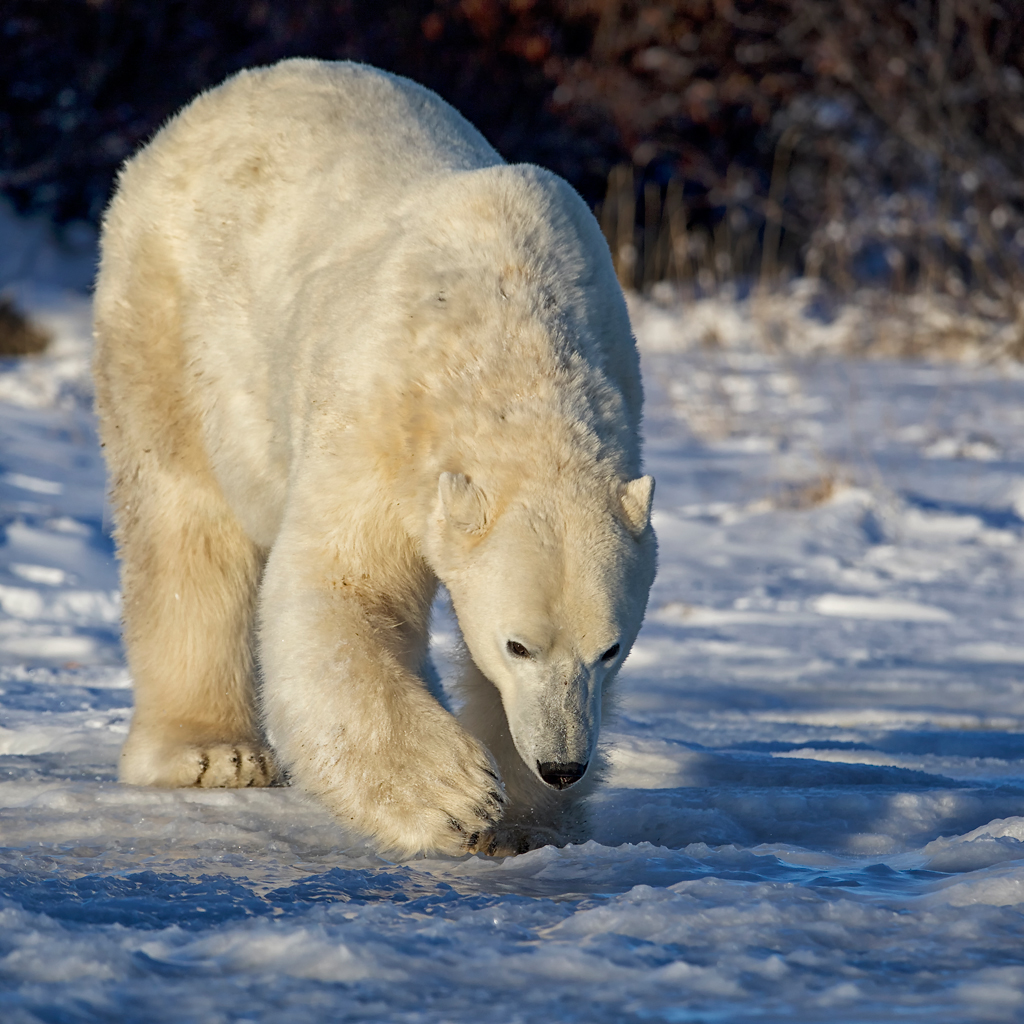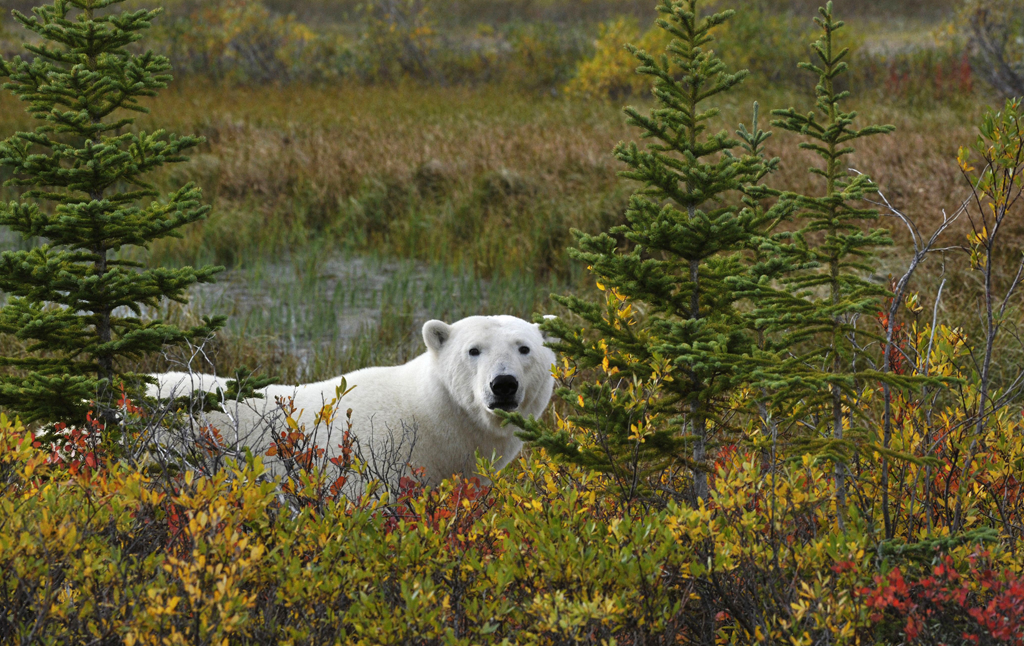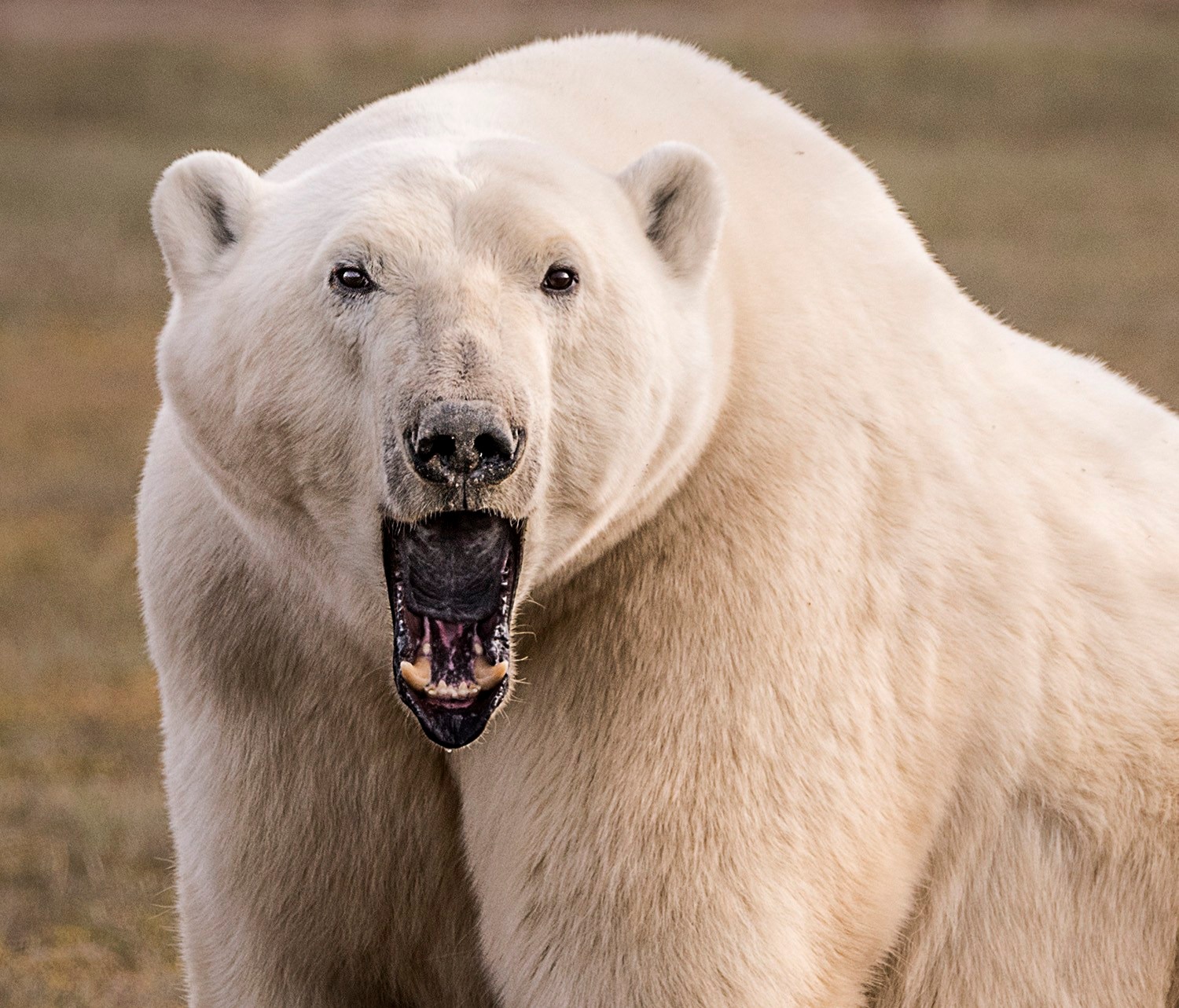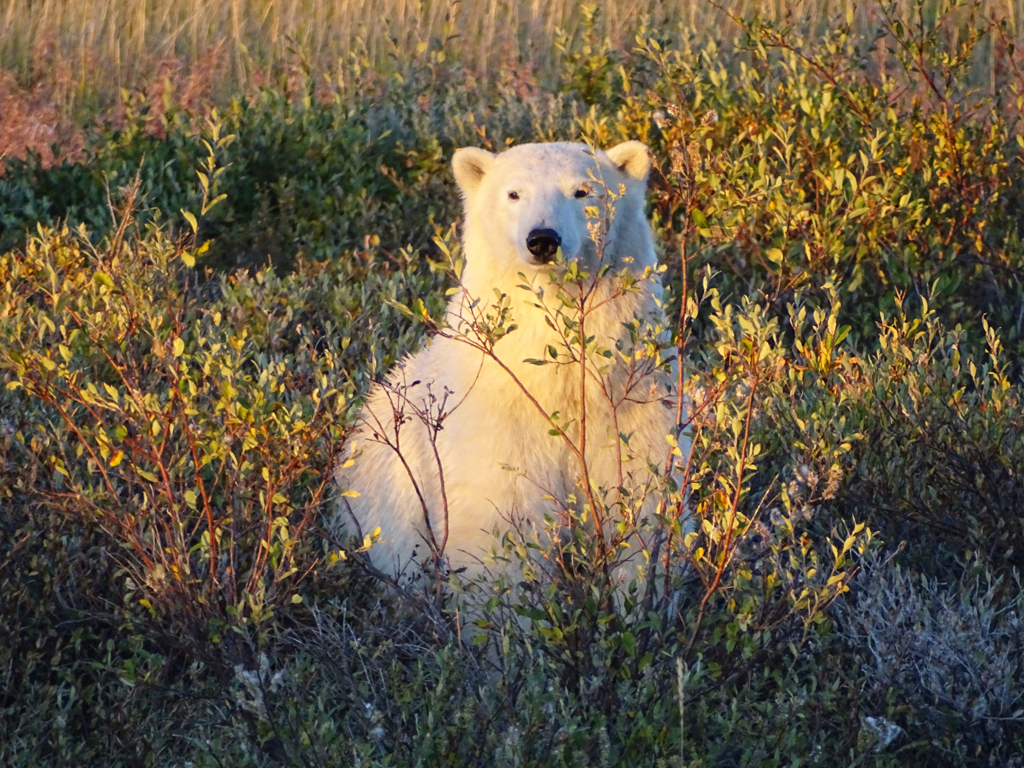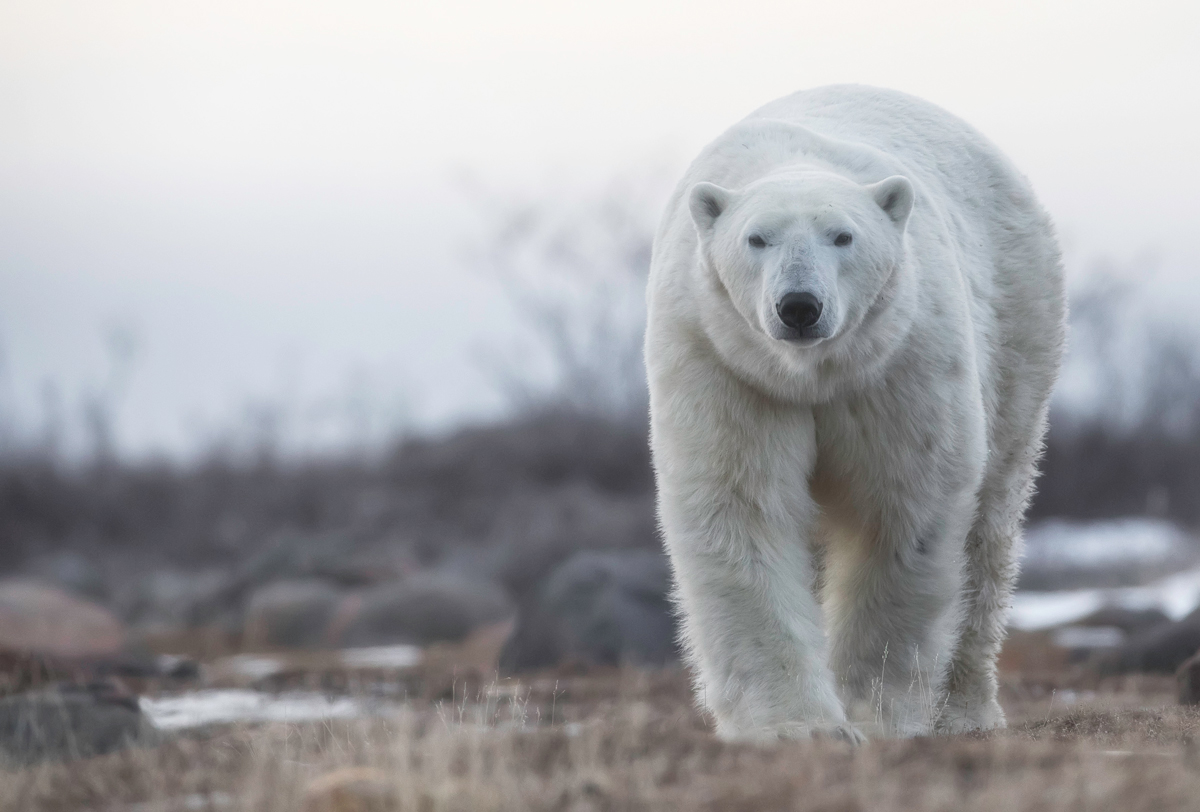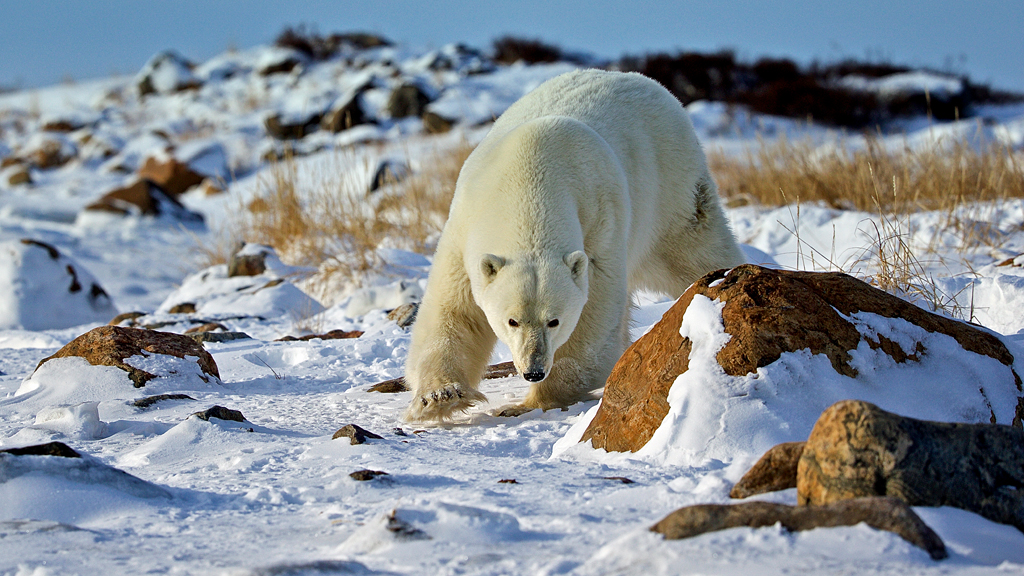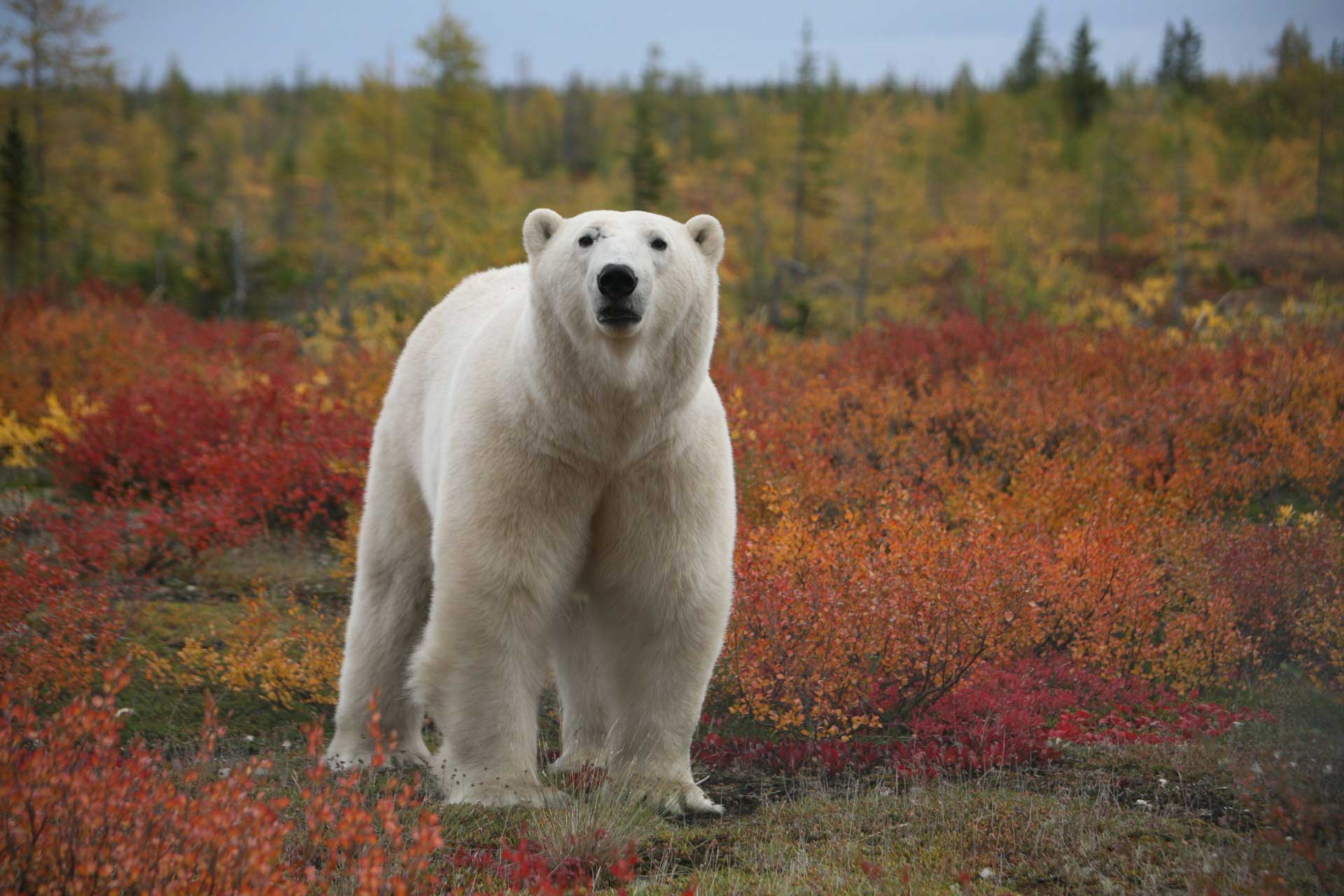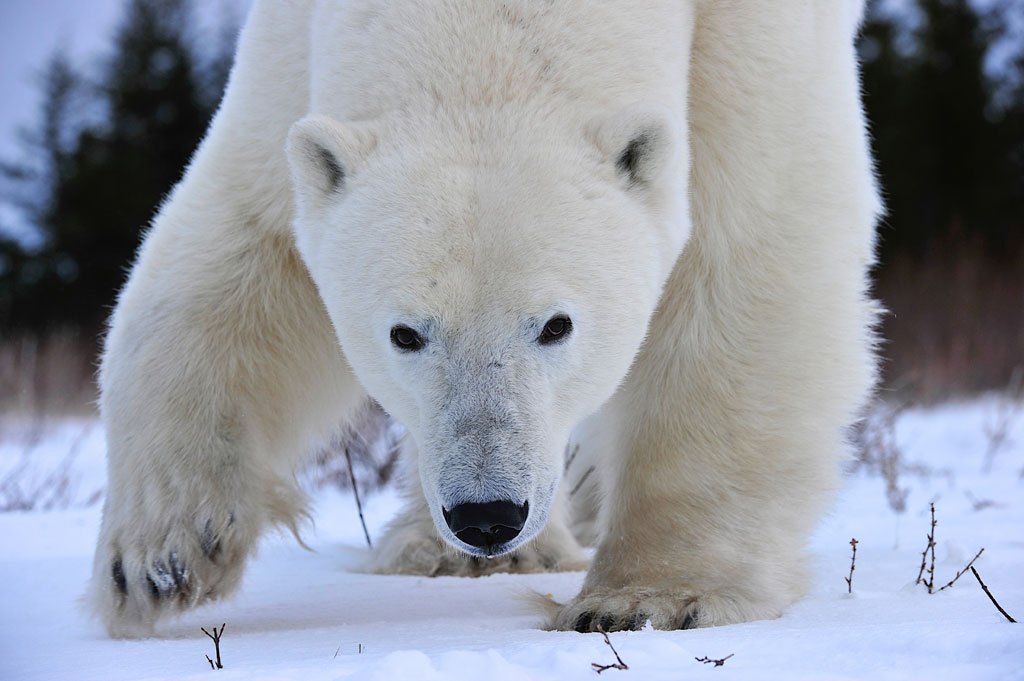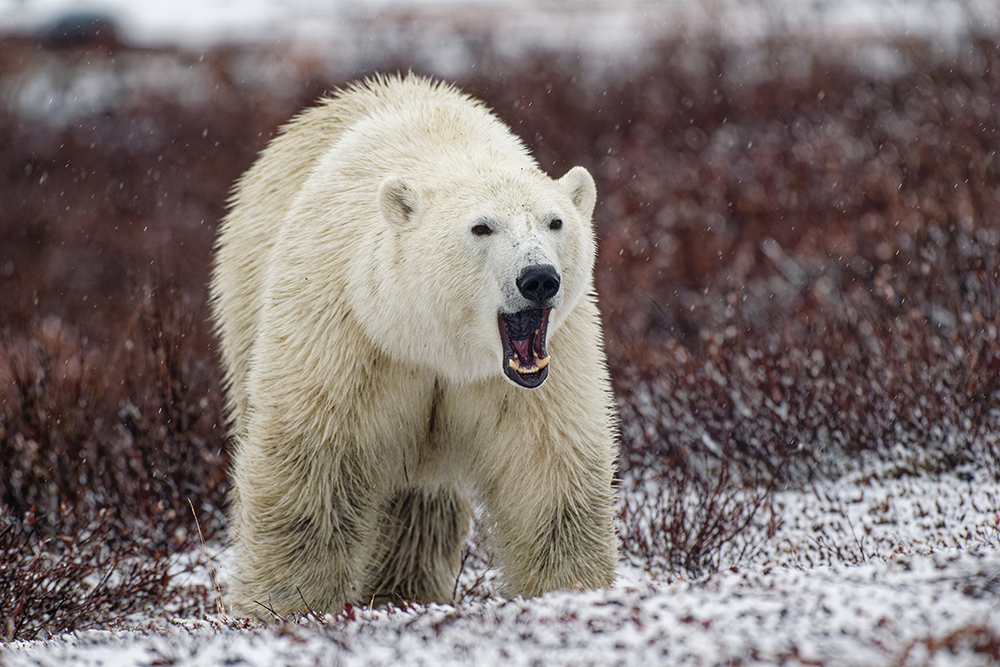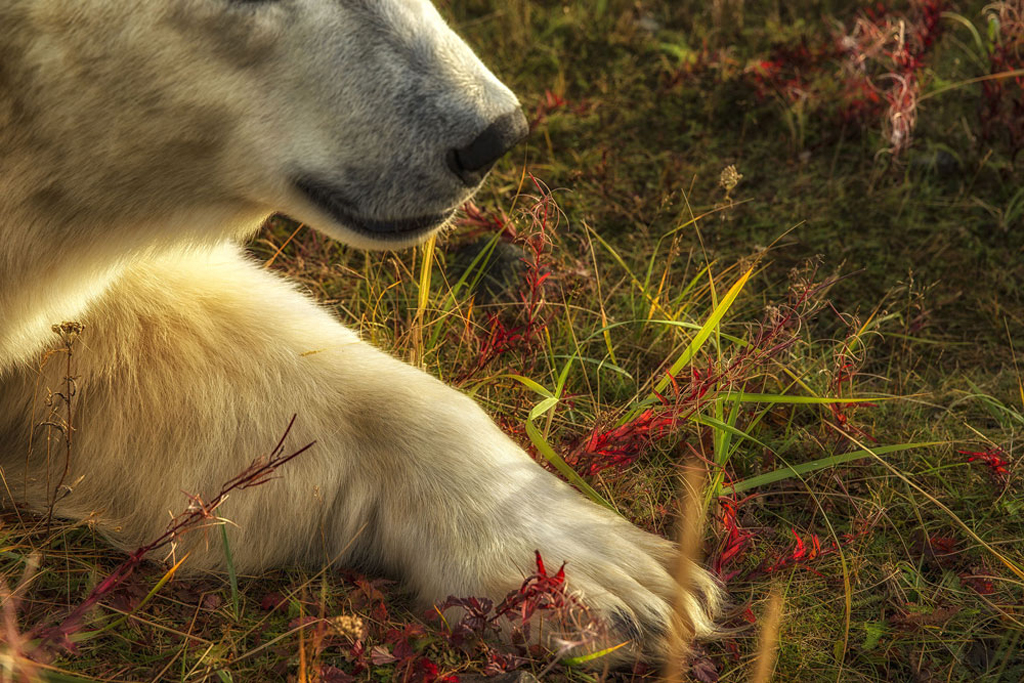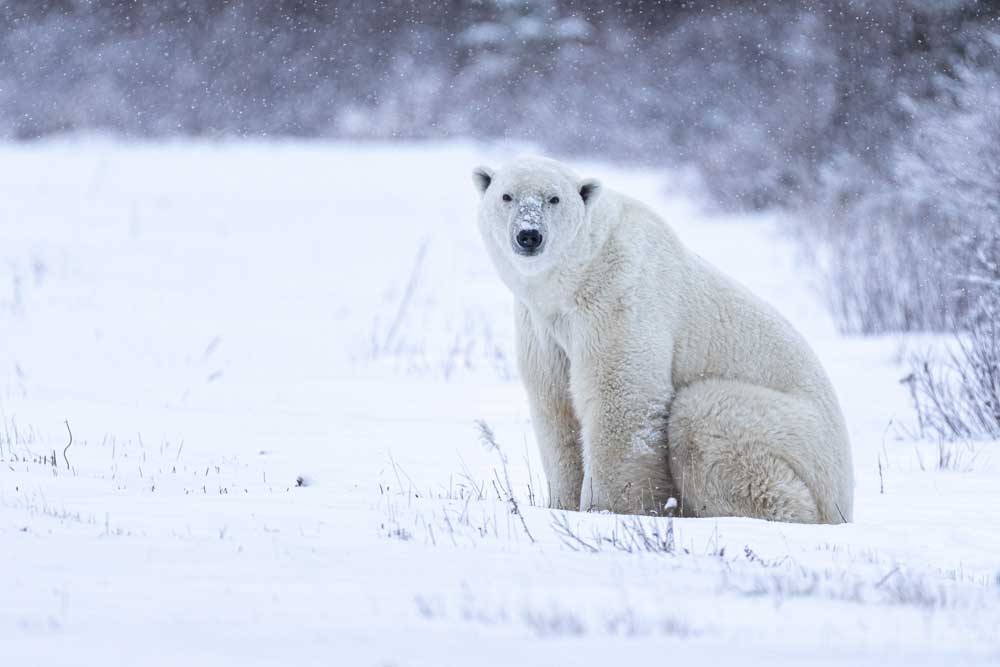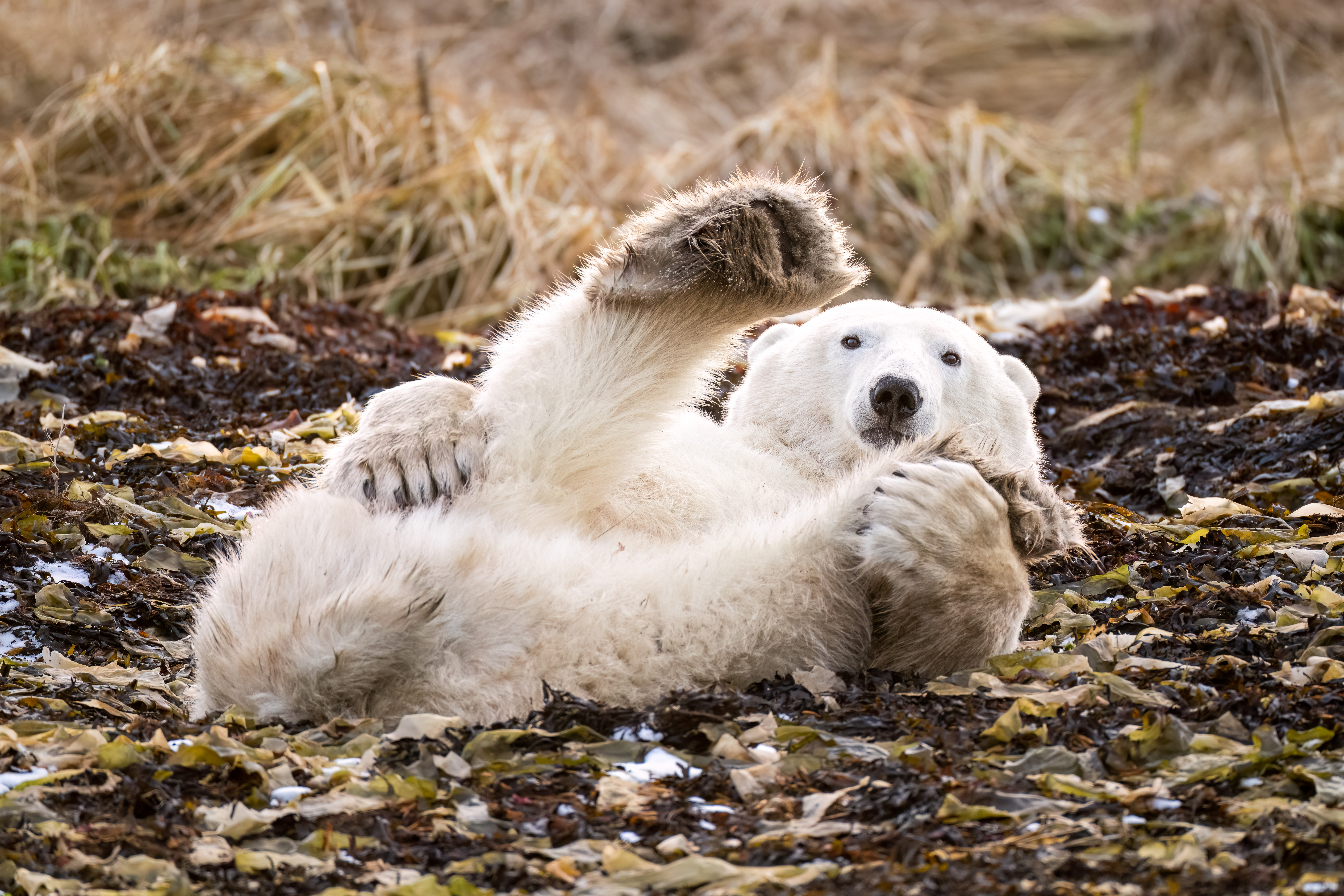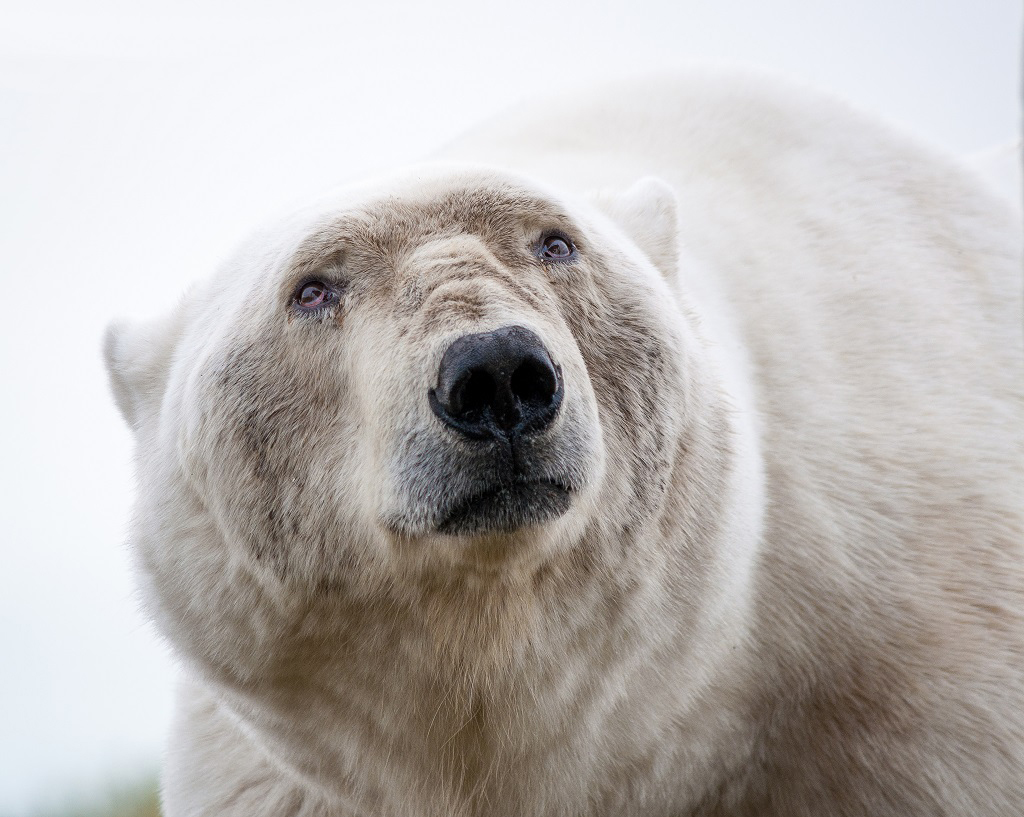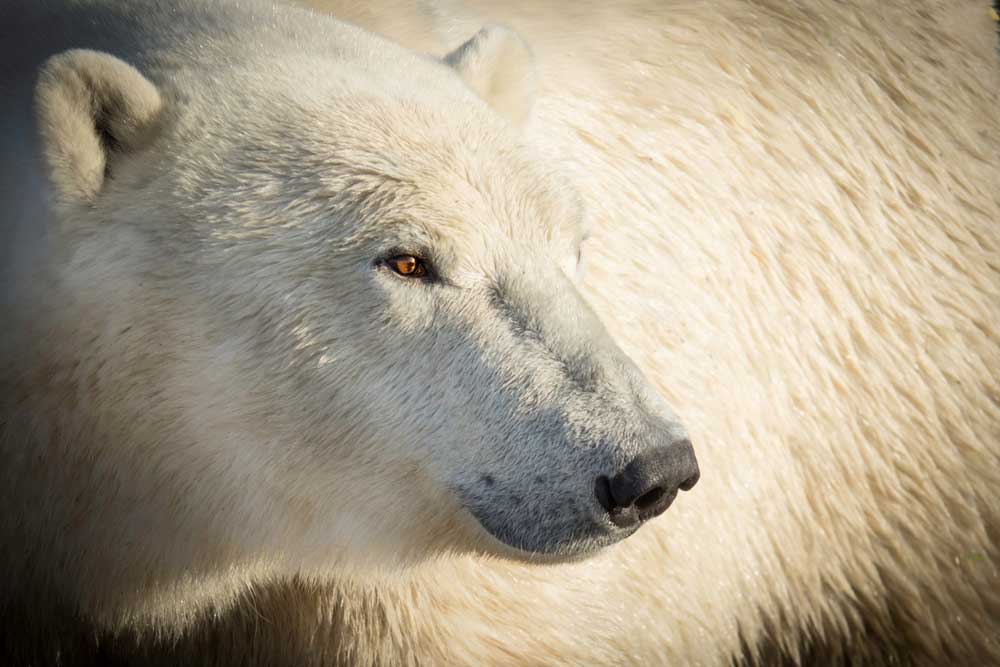Father’s Day is a time to celebrate the dedication, love, and effort of dads everywhere, and that includes the big male polar bears at our ecolodges on the Hudson Bay coast. Many of these bears, like Scarbow at Dymond Lake Ecolodge, and the late Warrior Pete at Seal River Heritage Lodge, have fathered numerous sons and daughters who return to our lodges regularly the polar bear tours and safaris from July through November.
Male polar bears are solitary creatures, although we have seen small groups of younger bears that enjoy each other’s company every year. They spend their summers wandering up and down the Hudson Bay coast relaxing and living off their fat reserves, and return to the ice to shore up those reserves hunting seals from November until the ice melts in late June or early July.
Mating occurs primarily in March and April, although it can start as early as January and run as late as June, and battles for the attention of females can be intense. The playful sparring sessions we see at our lodges during the summer and fall help prepare future fathers for the real thing, which can often be fierce battles. Victorious males mate with their chosen females, contributing superior genetic material to the next generation.
Once the mating season concludes, male polar bears resume their solitary lifestyles. Unlike female polar bears, which spend considerable time nurturing and protecting their cubs, males do not participate in rearing the youngsters. Instead, they continue their endless journey up and down the coast during the summer, and across the frozen landscape of Hudson Bay during the winter, driven by an insatiable need to hunt and survive.
The life of a male polar bear is defined by survival. These apex predators are well-adapted to their environment, relying on exceptional hunting skills to catch seals, their primary prey. Over the past 15 years, we have also seen polar bears successfully hunting beluga whales during the summer at Seal River Heritage Lodge, evolving and adapting to the shorter ice seasons.
A successful hunt requires patience, strength, and stealth, qualities that male polar bears possess in abundance. Their ability to survive and thrive in such extreme conditions is a testament to their resilience and determination.
While male polar bears may not exhibit traditional paternal behaviors, their existence offers valuable insights into the diverse ways nature approaches parenthood, and they’re not all that different from many of your own dads.
Strength and Independence
Male polar bears exemplify strength and independence. Their solitary lifestyle and relentless pursuit of survival highlight the importance of resilience and self-reliance. On Father’s Day, we can celebrate these qualities in the fathers who demonstrate unwavering strength in the face of life’s challenges.
Adaptability
The Arctic is a harsh ever-changing environment, and male polar bears must constantly adapt to survive. This adaptability mirrors the role of fathers who navigate the complexities of parenthood, adjusting to the needs of their families and providing support in various forms.
Role Diversity
Nature’s approach to fatherhood is incredibly diverse. While some species rely heavily on male involvement in parenting, others, like polar bears, have different strategies. This diversity reminds us that there is no one-size-fits-all approach to being a father. Every dad brings unique strengths and contributions to their family.
Sacrifice and Survival
The solitary journey of a male polar bear is marked by sacrifice. Their endless quest for food and survival mirrors the sacrifices many fathers make for their families. Providing for loved ones often requires immense effort and dedication, traits that are worthy of recognition and celebration.
Male polar bears offer a unique perspective on the qualities that define a father. Strength, independence, adaptability, and sacrifice are all traits that resonate deeply with the human experience of fatherhood. So, here’s to all the dads out there, human and animal alike, who embody these remarkable qualities.
Happy Father’s Day!

